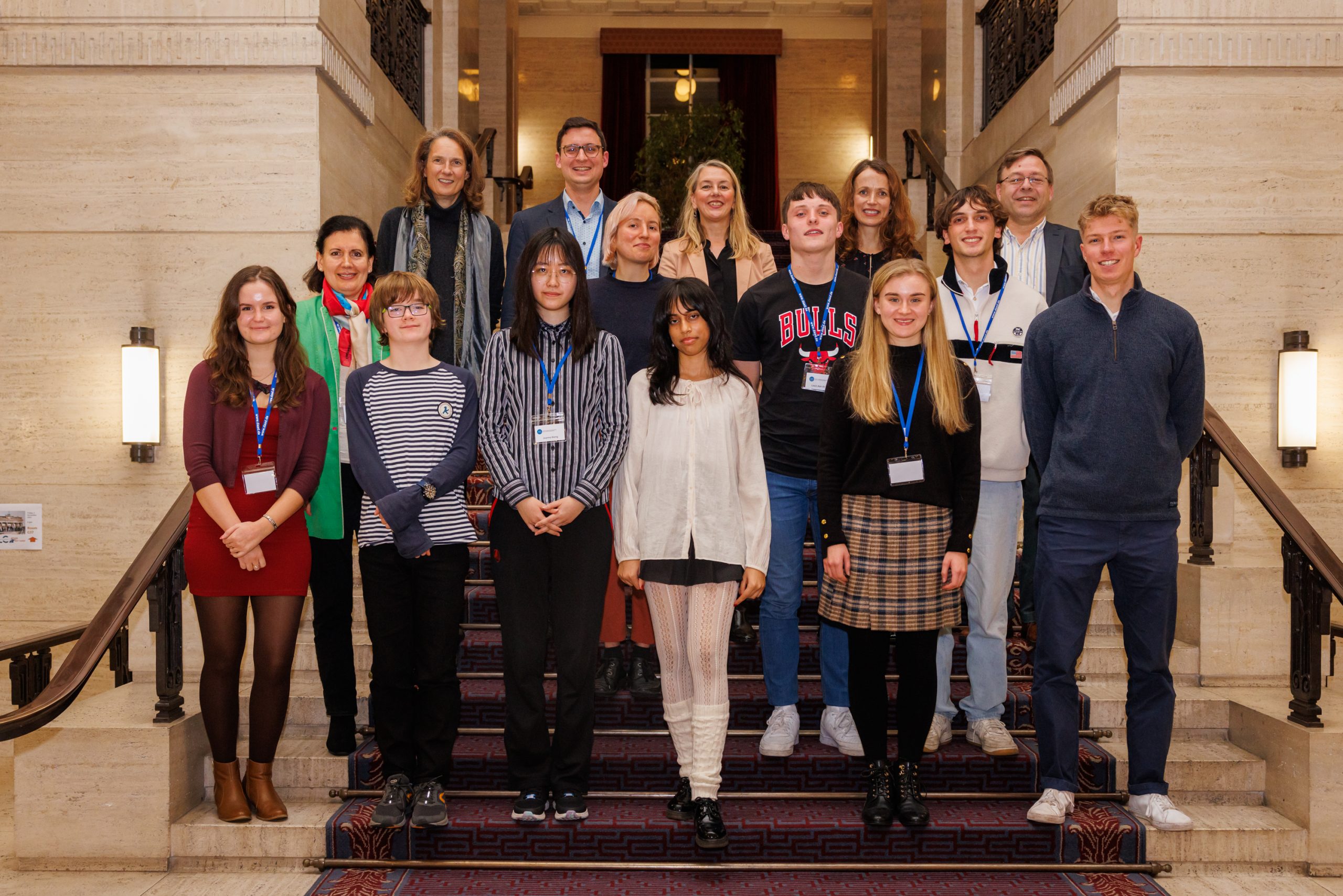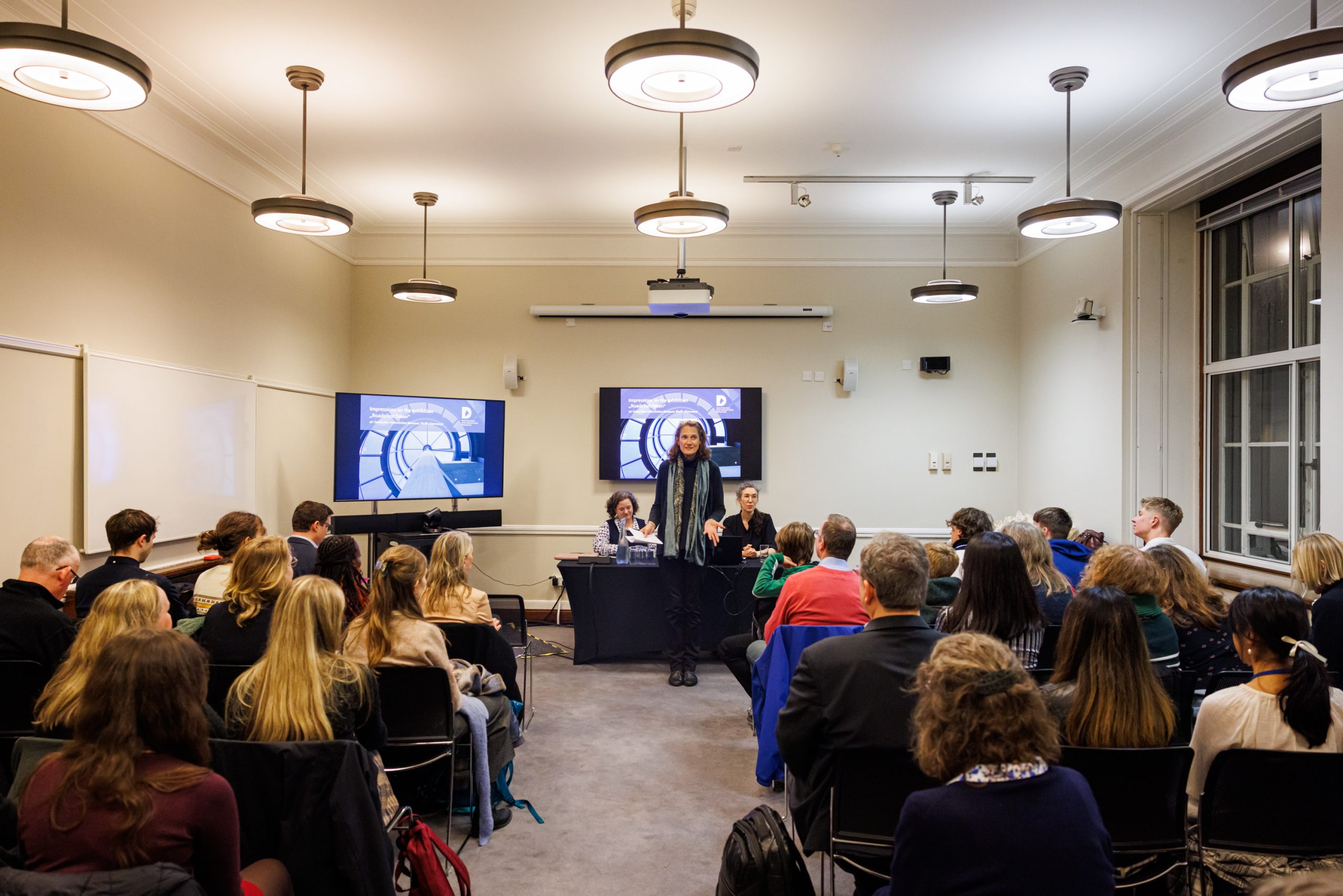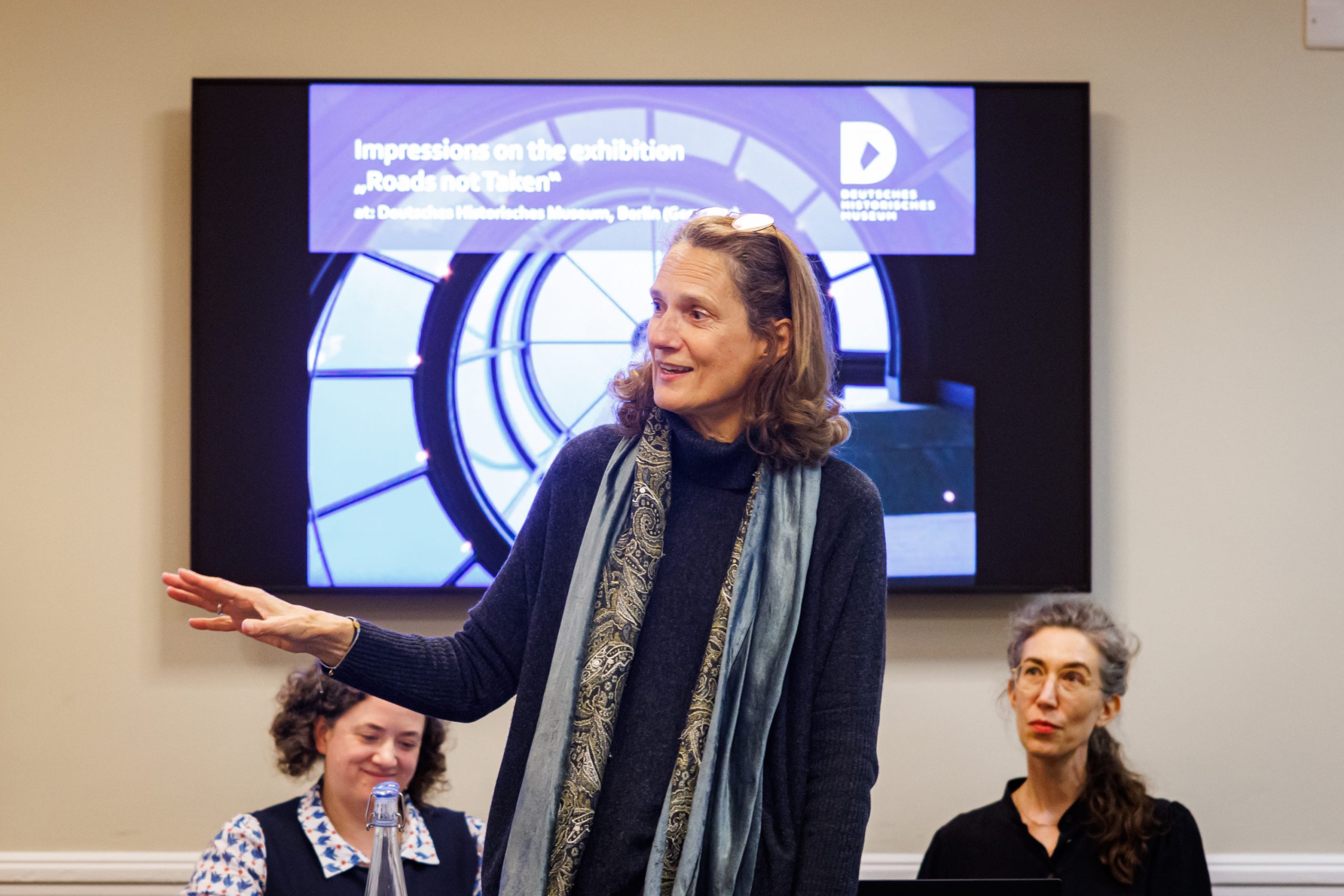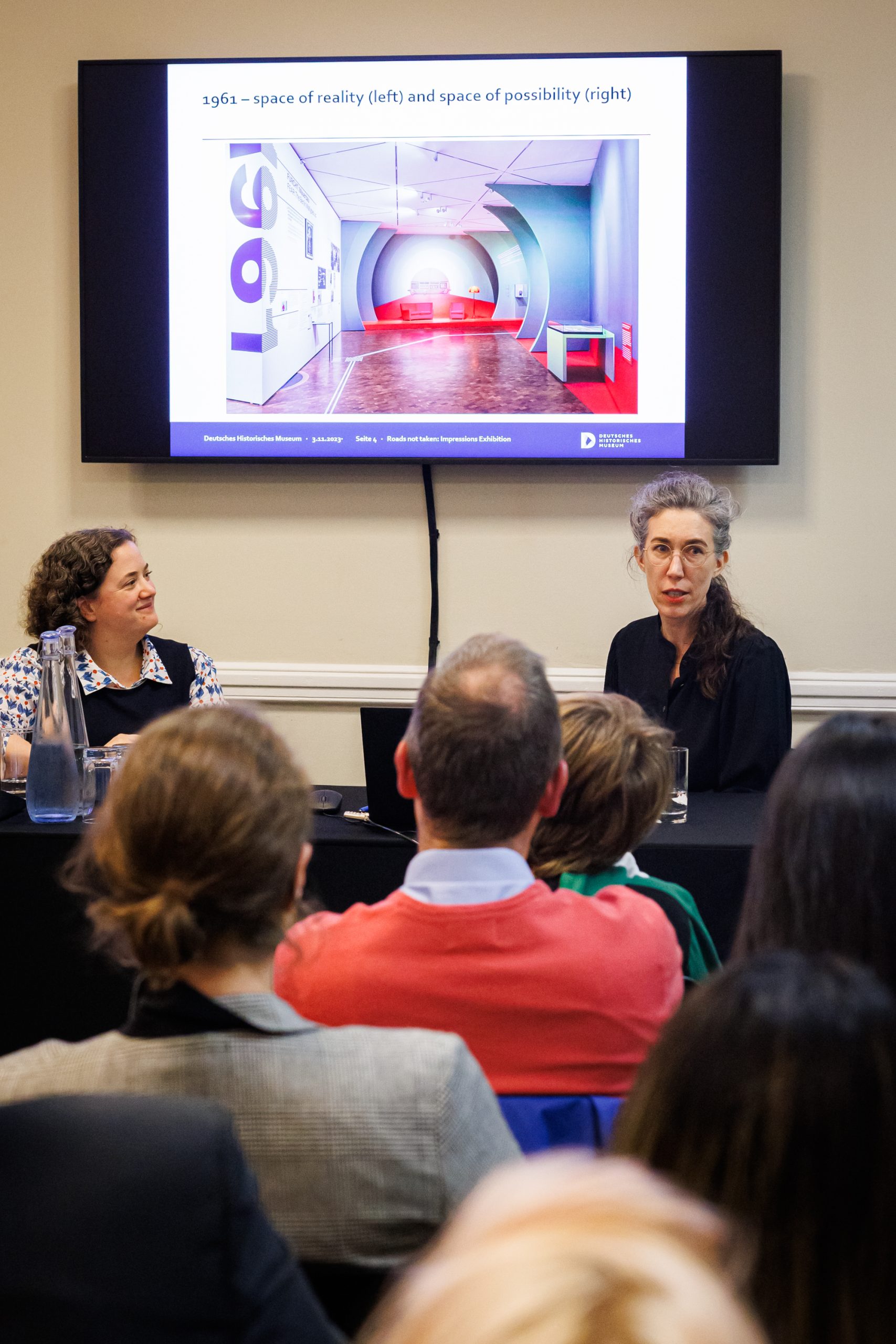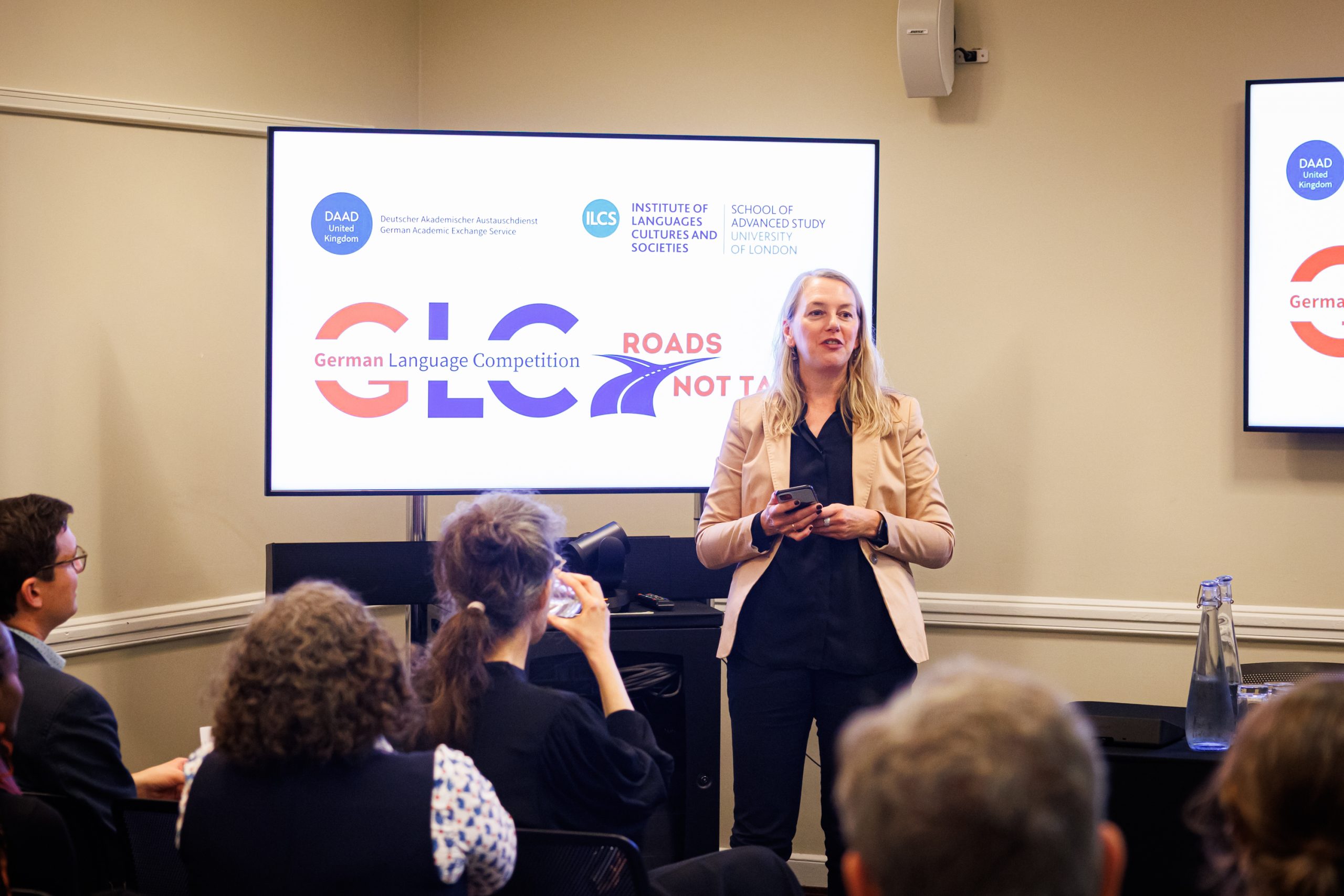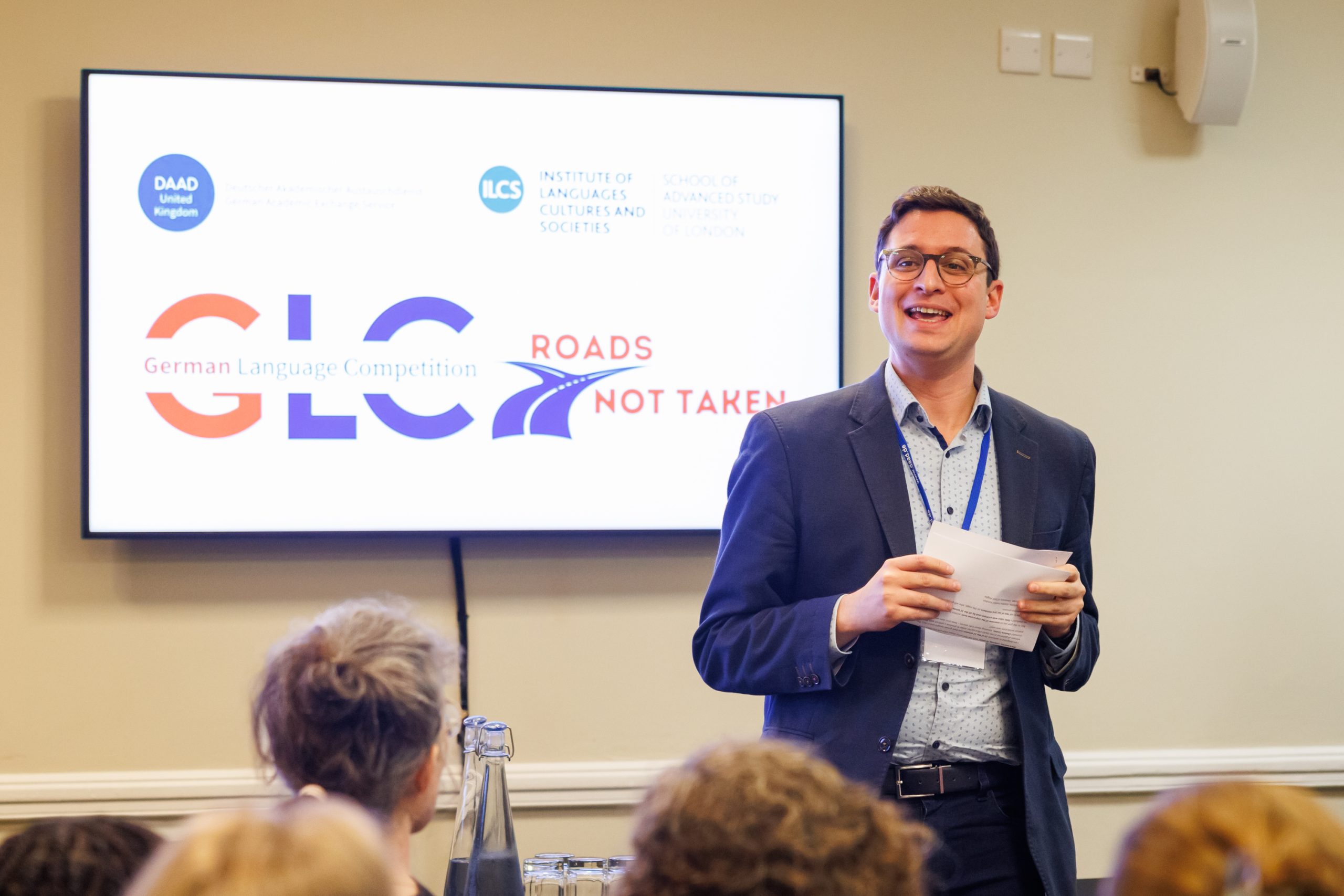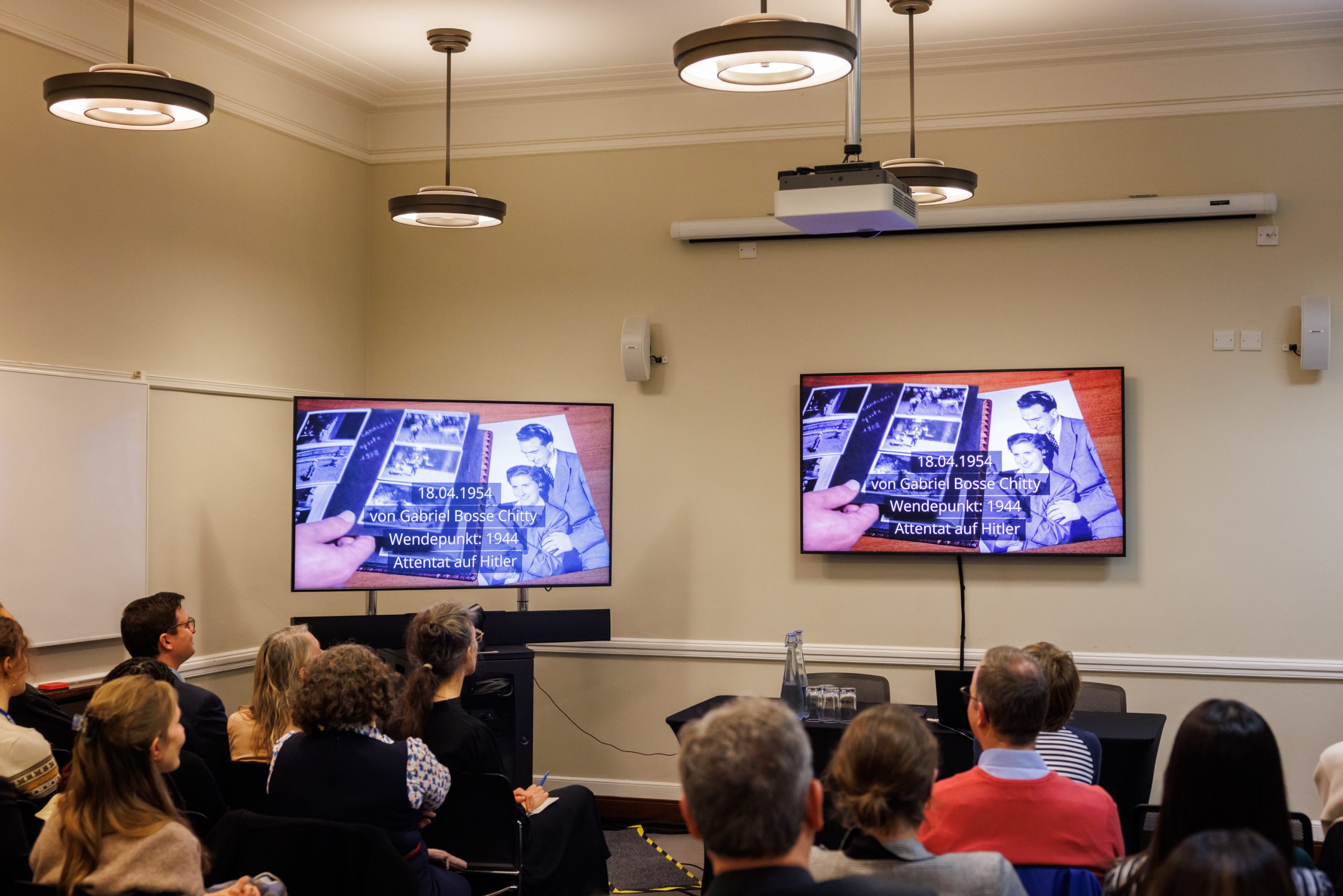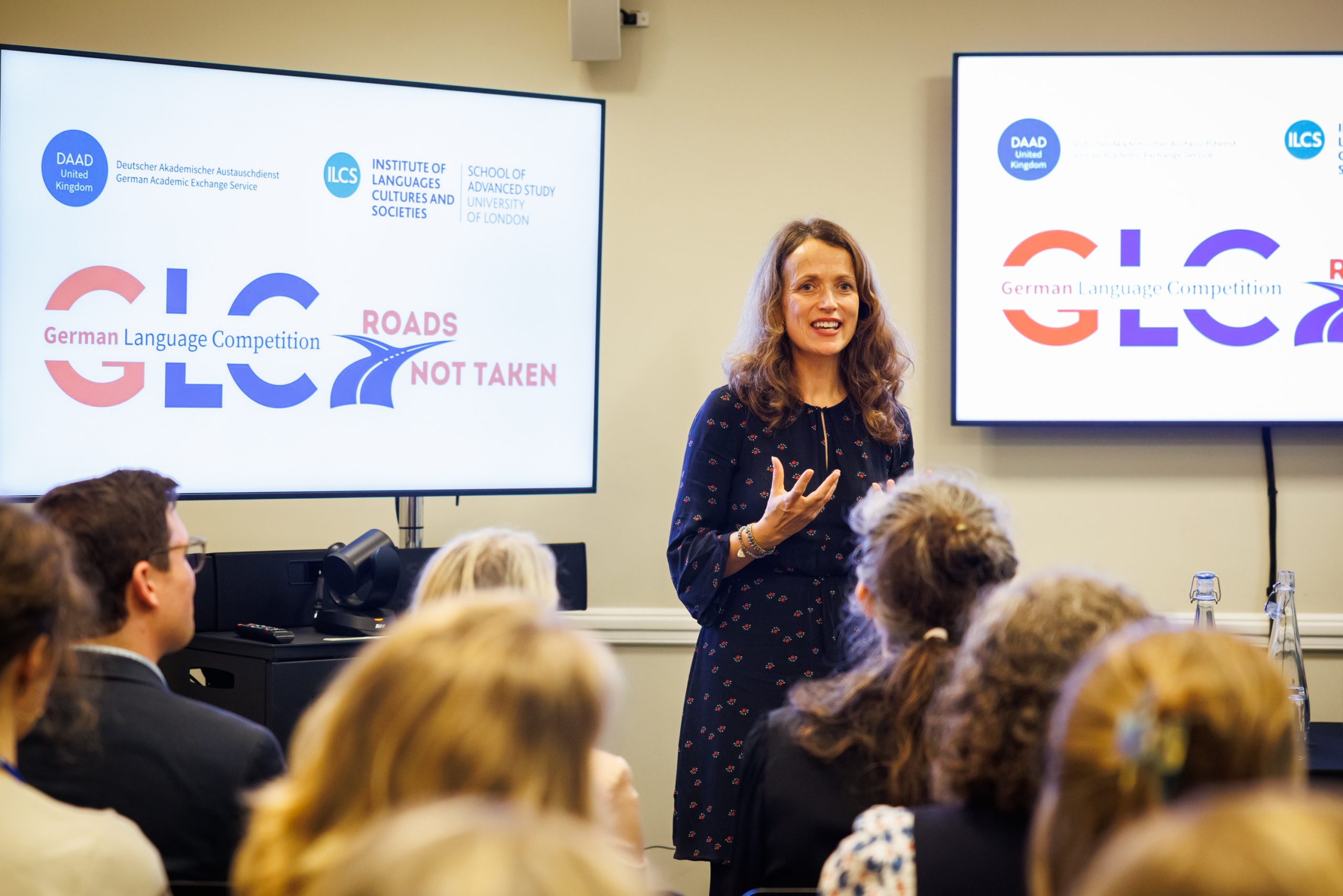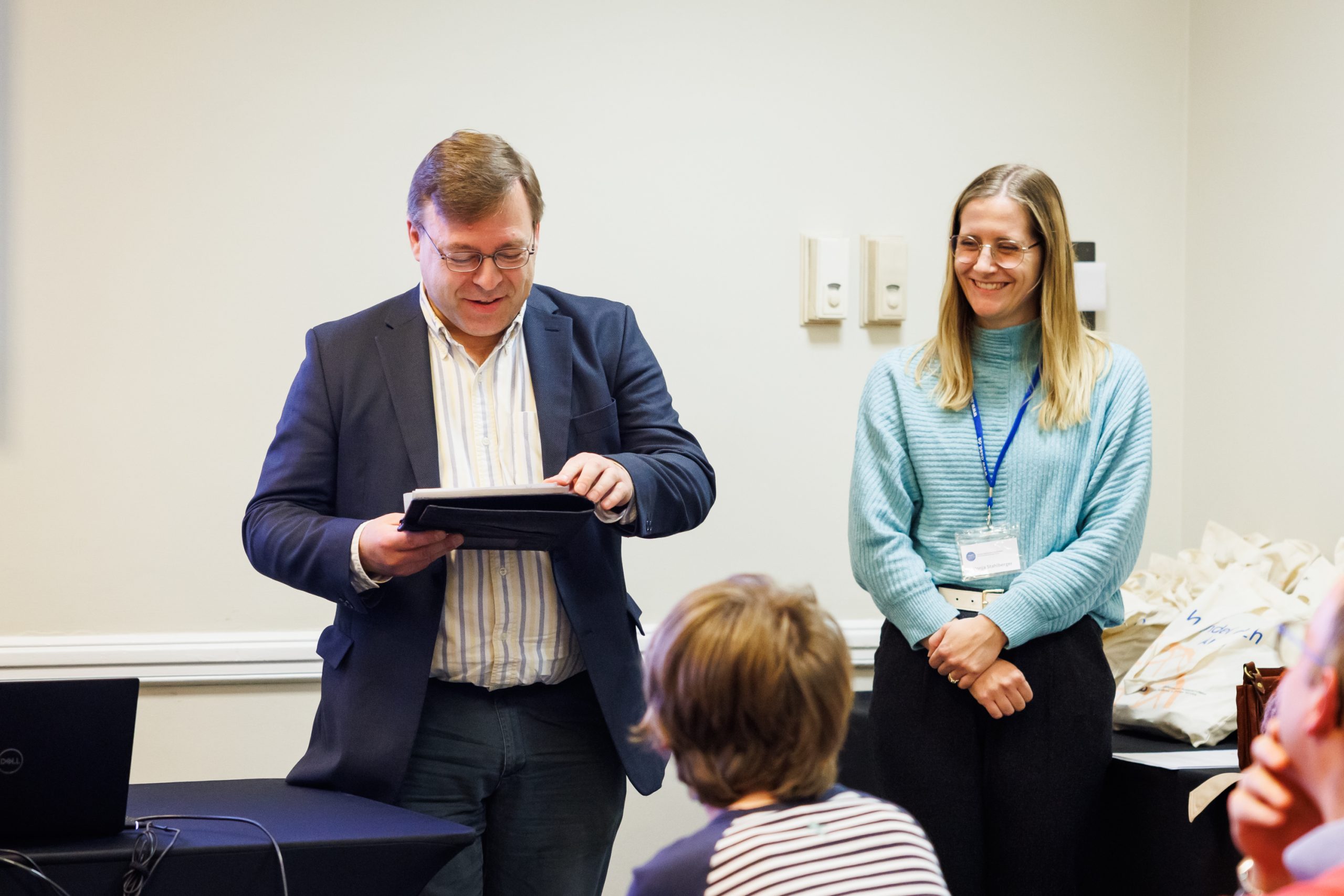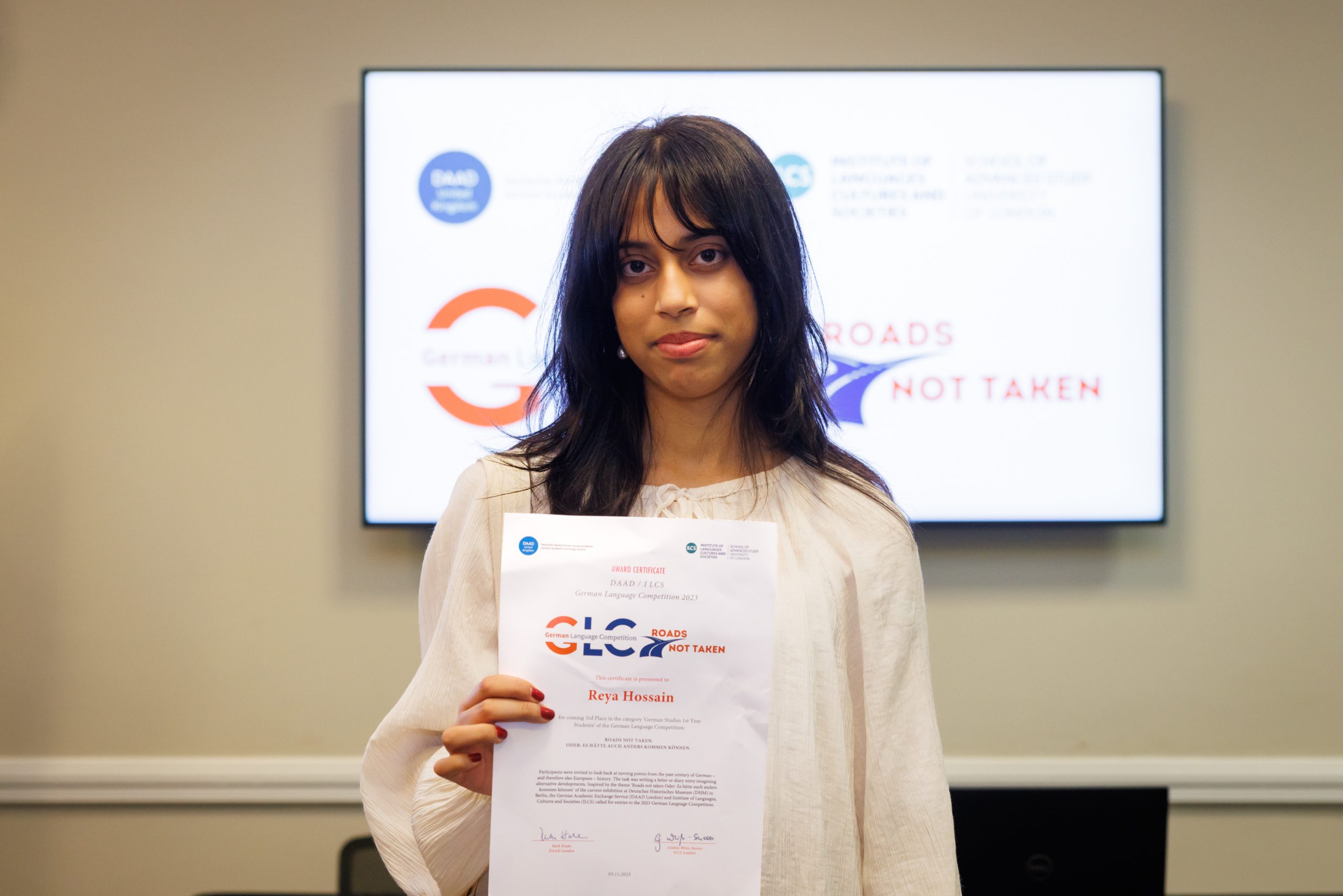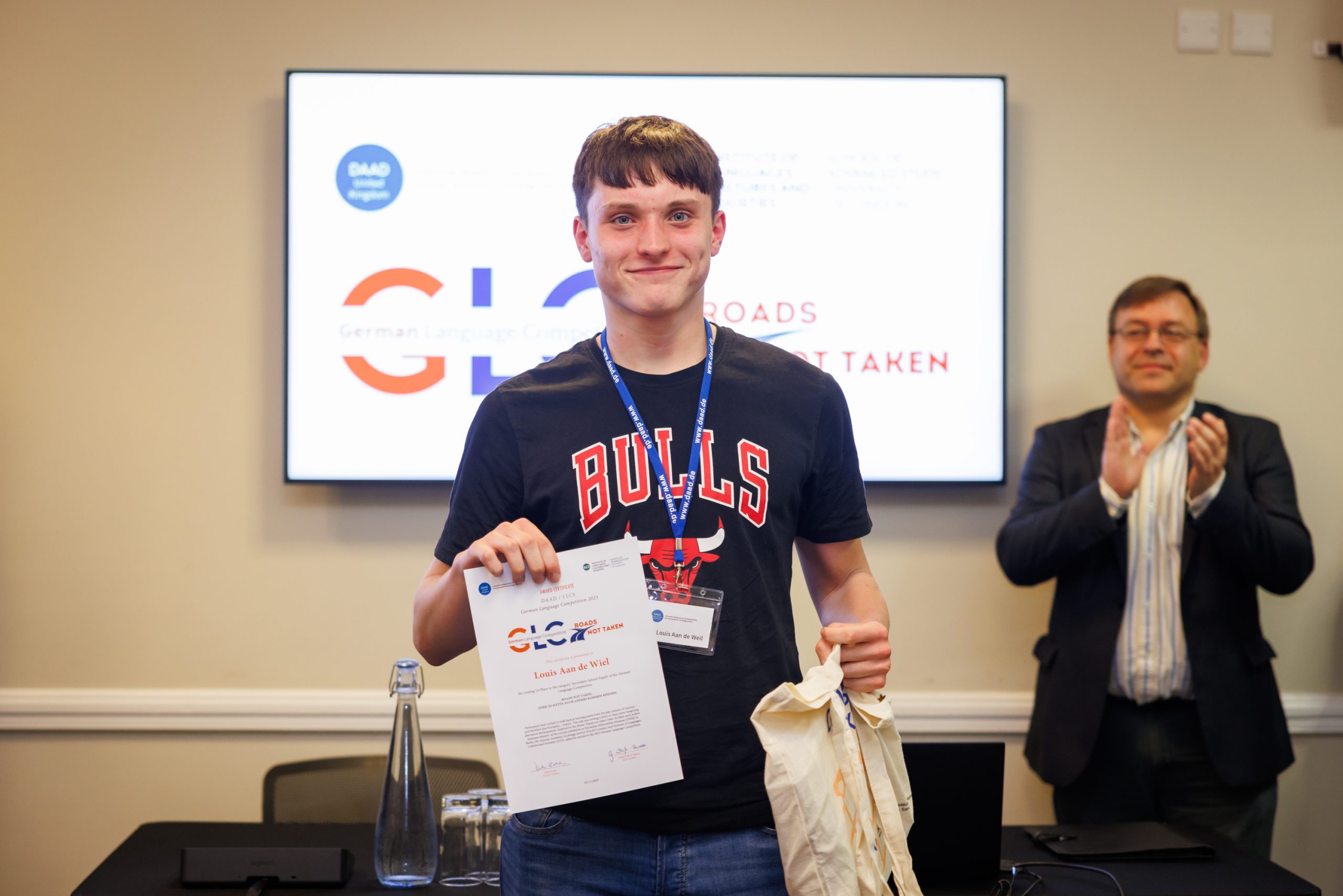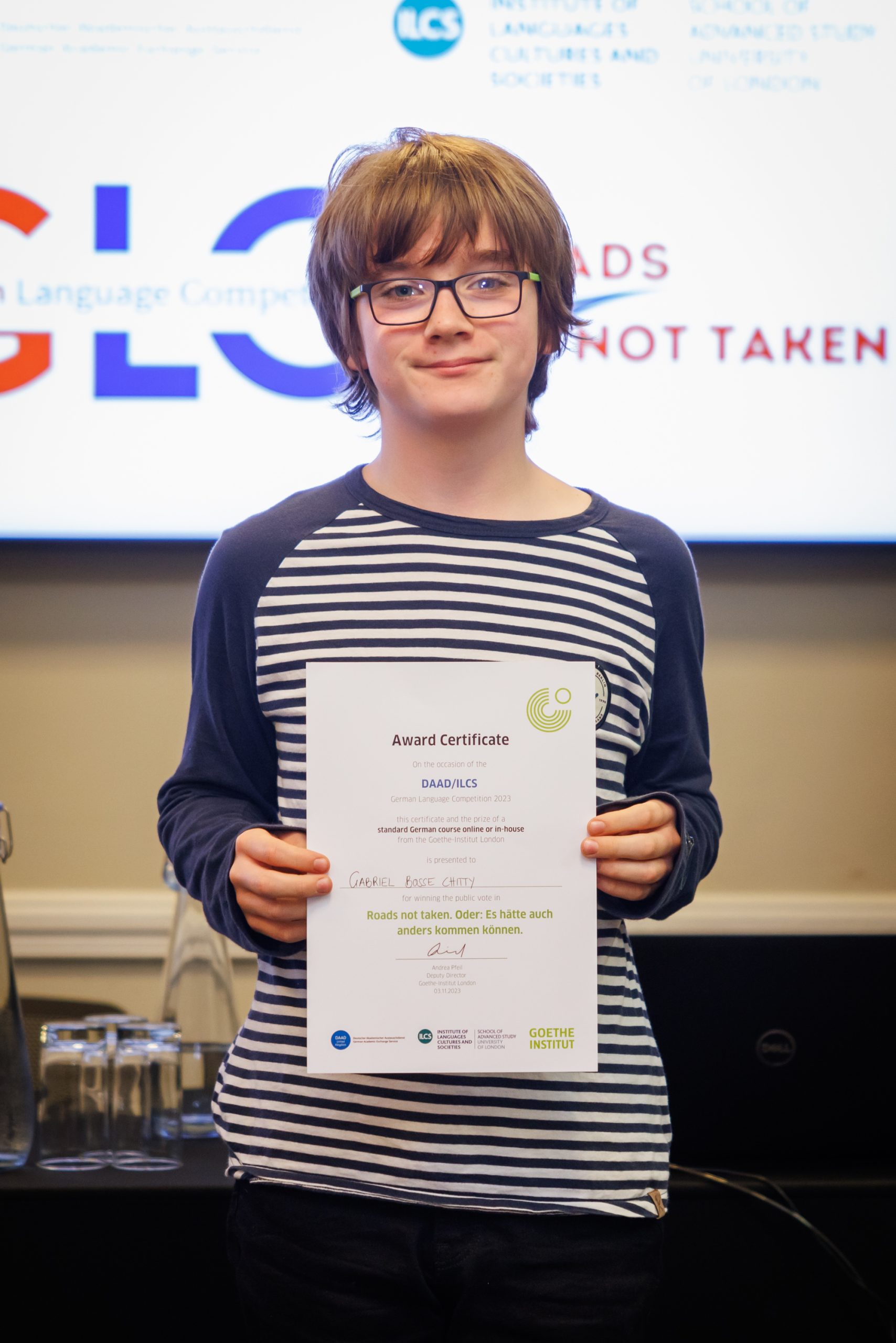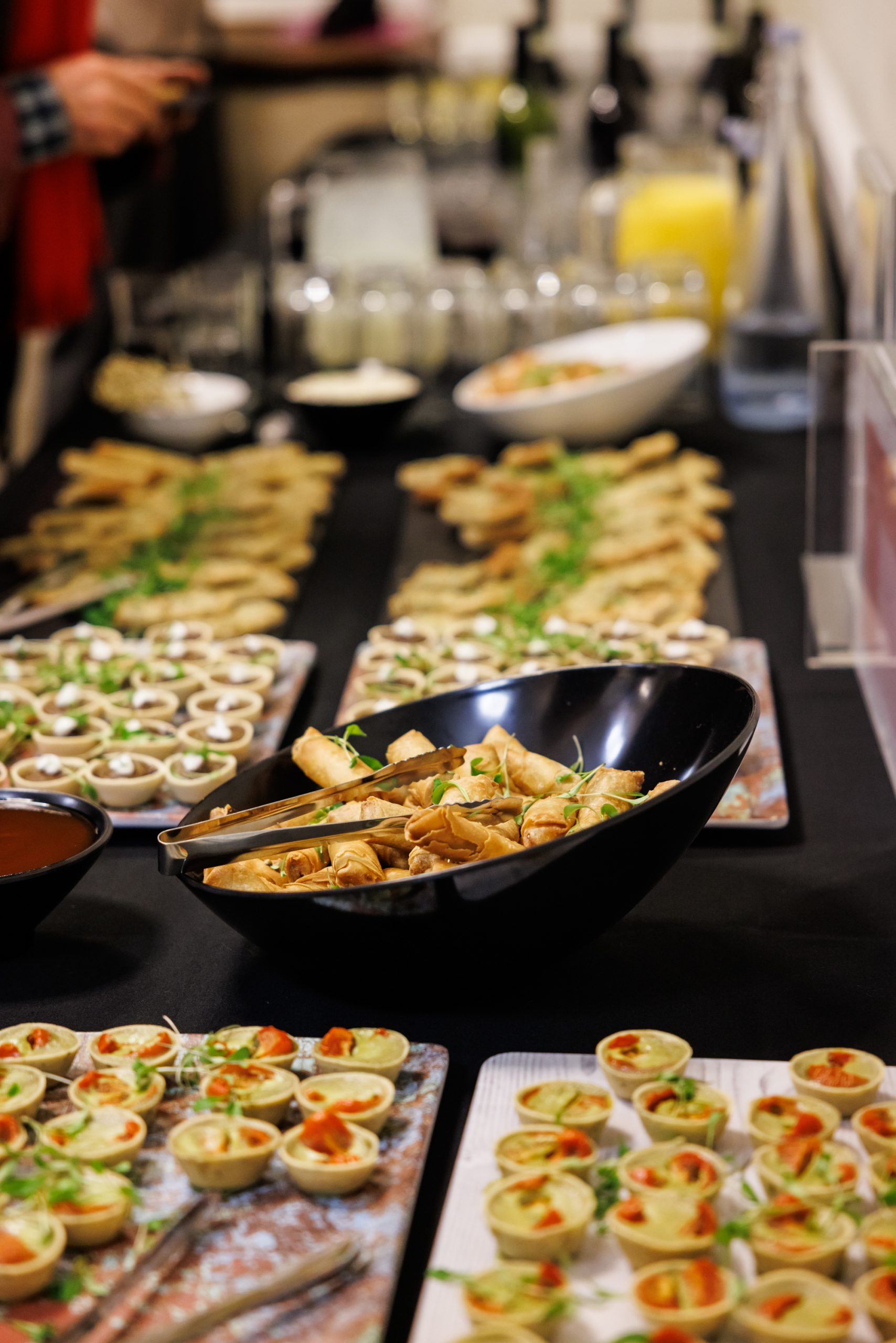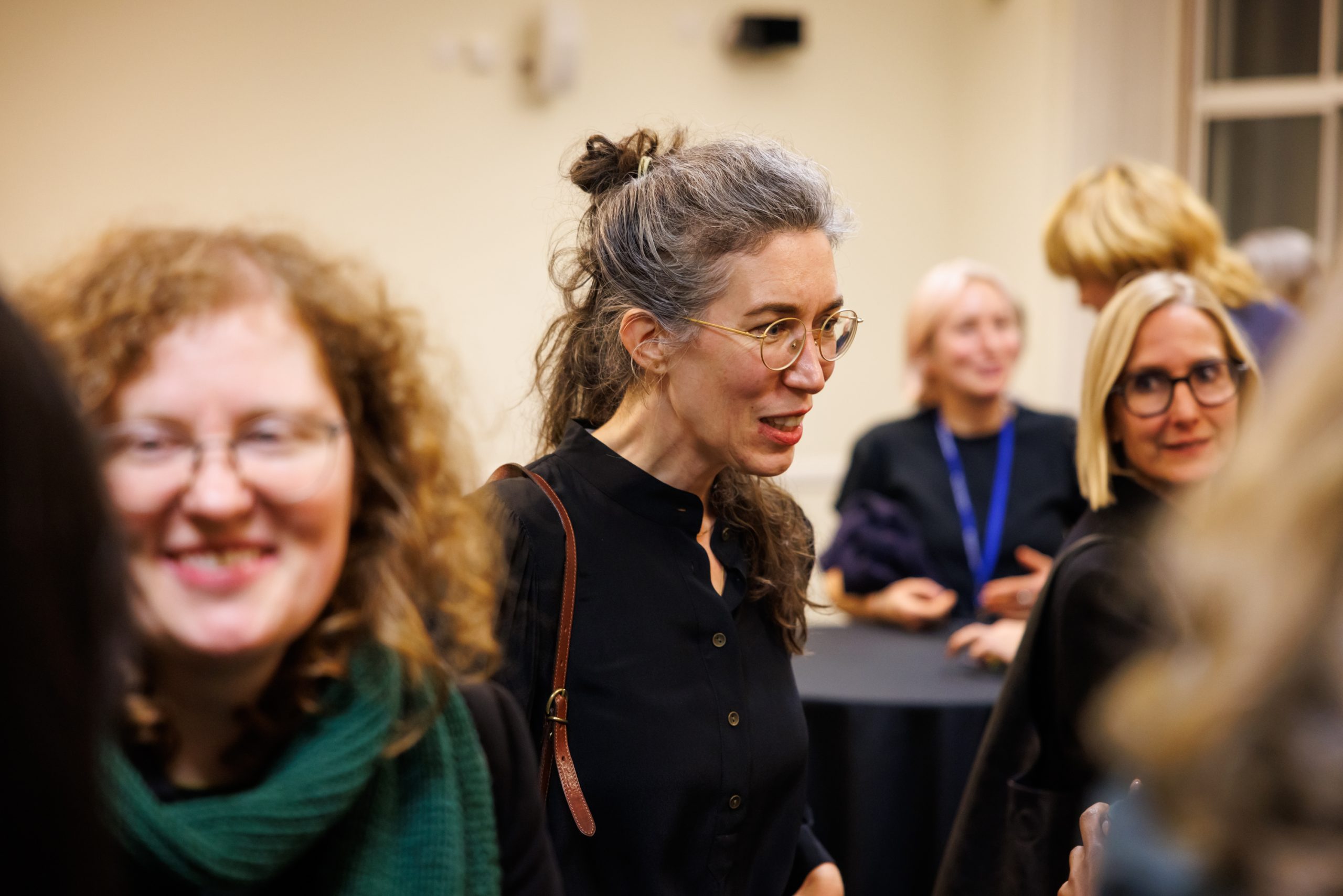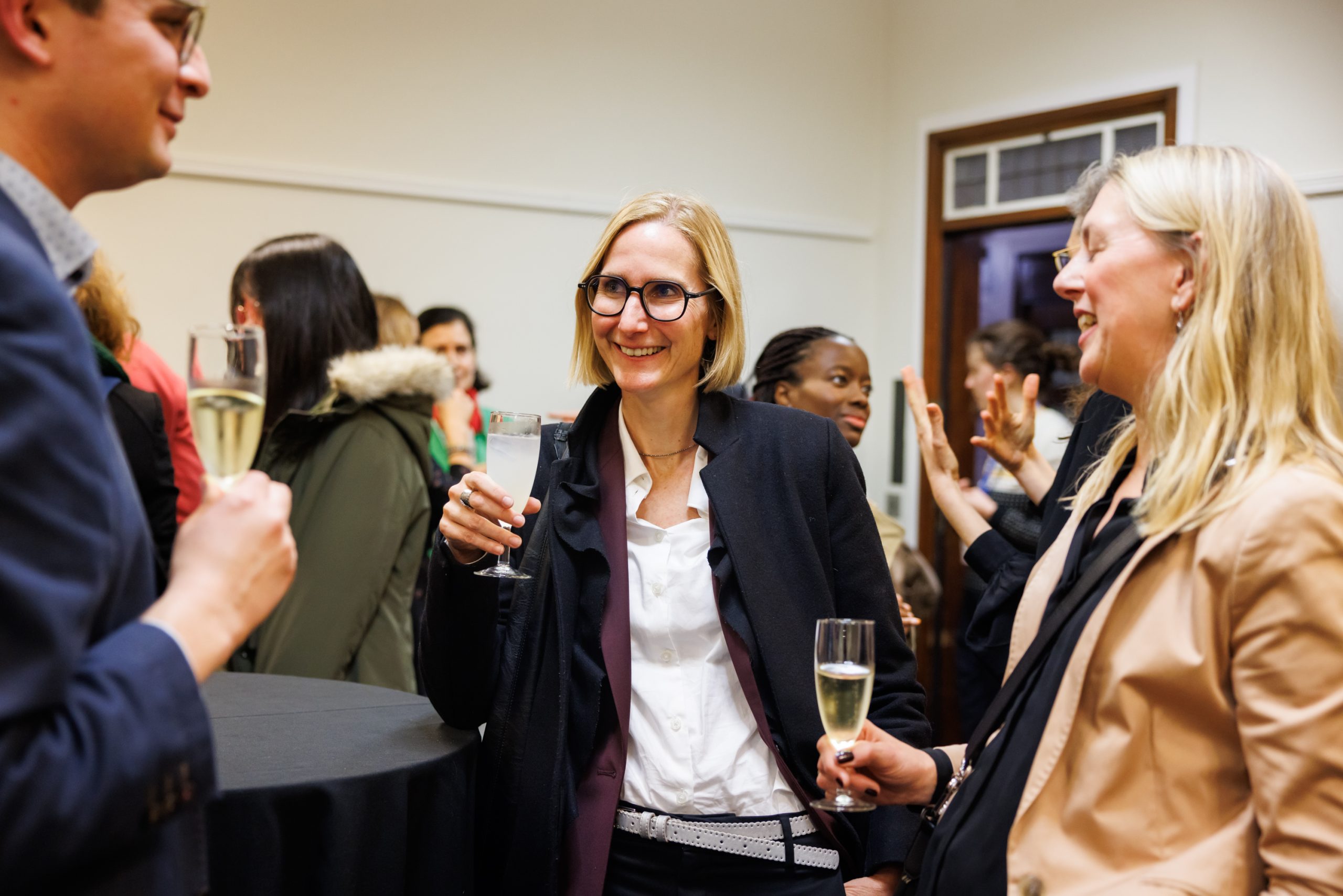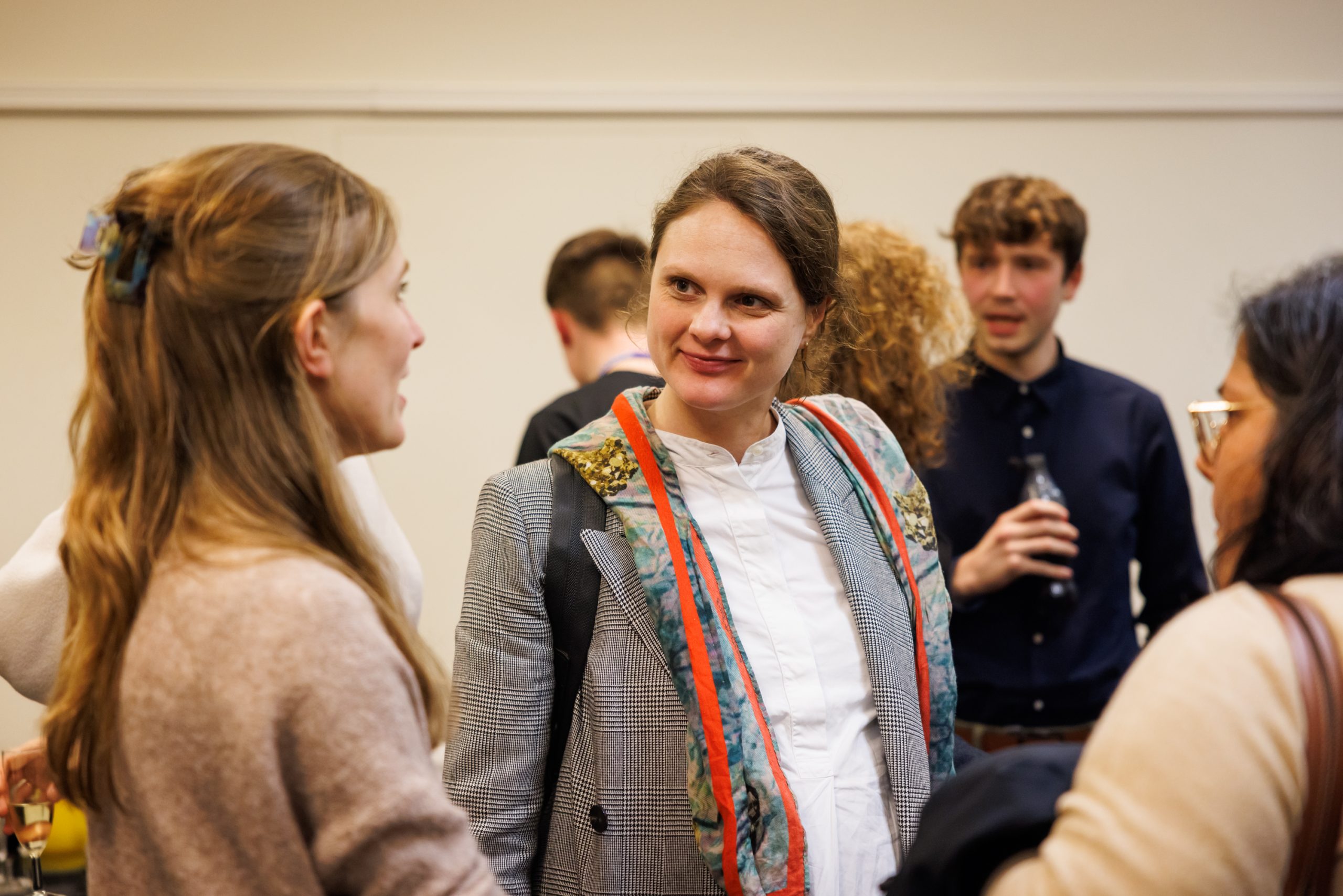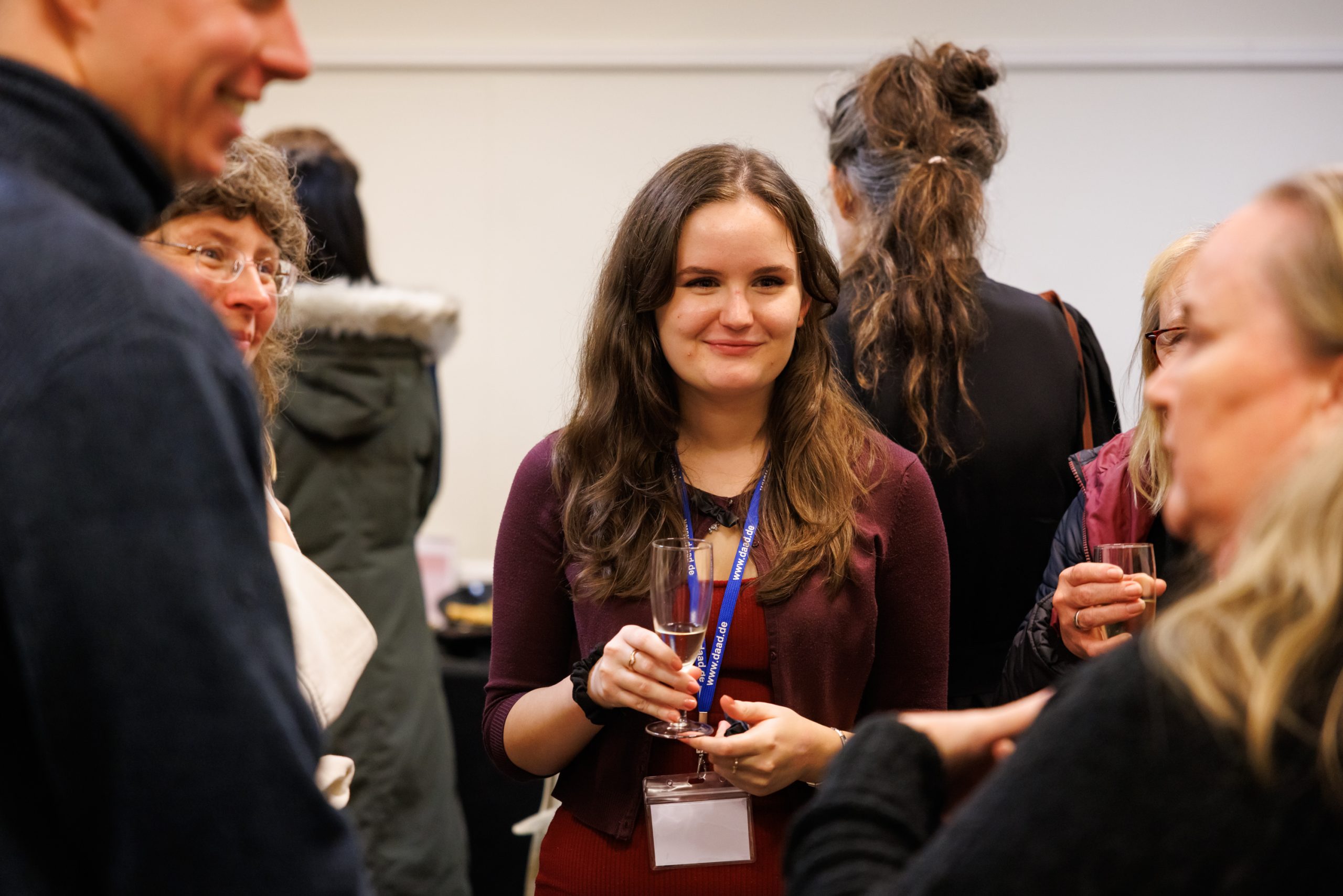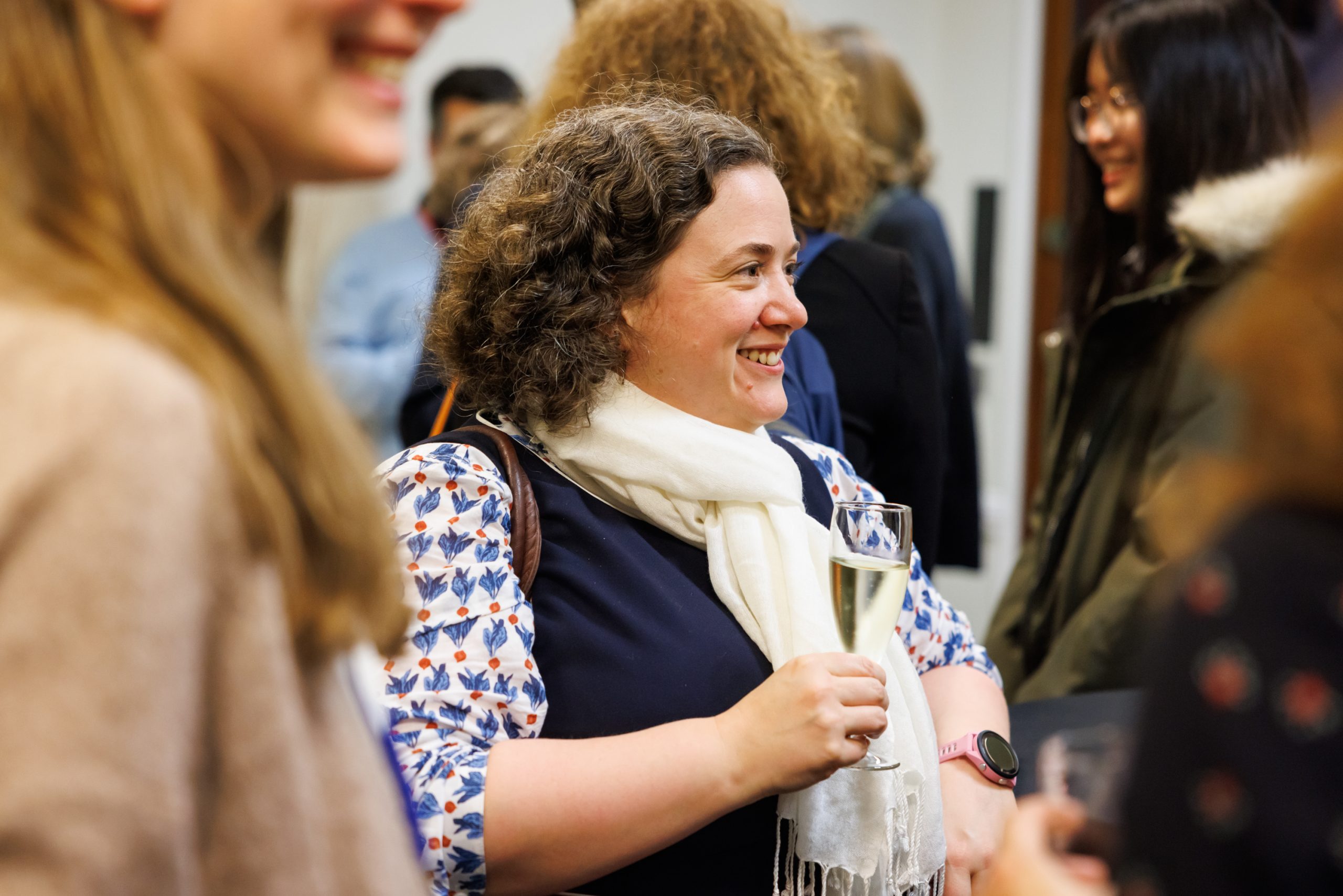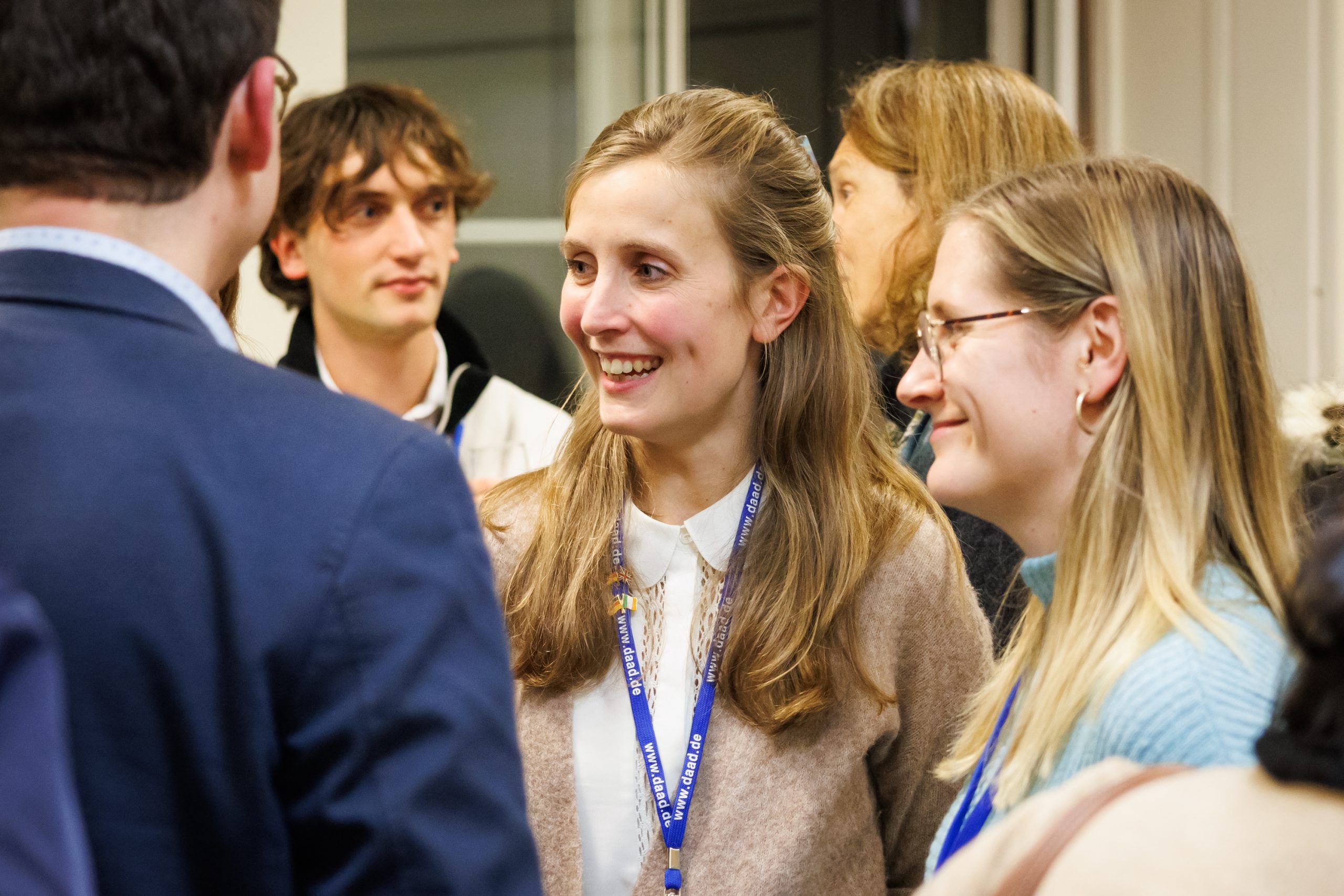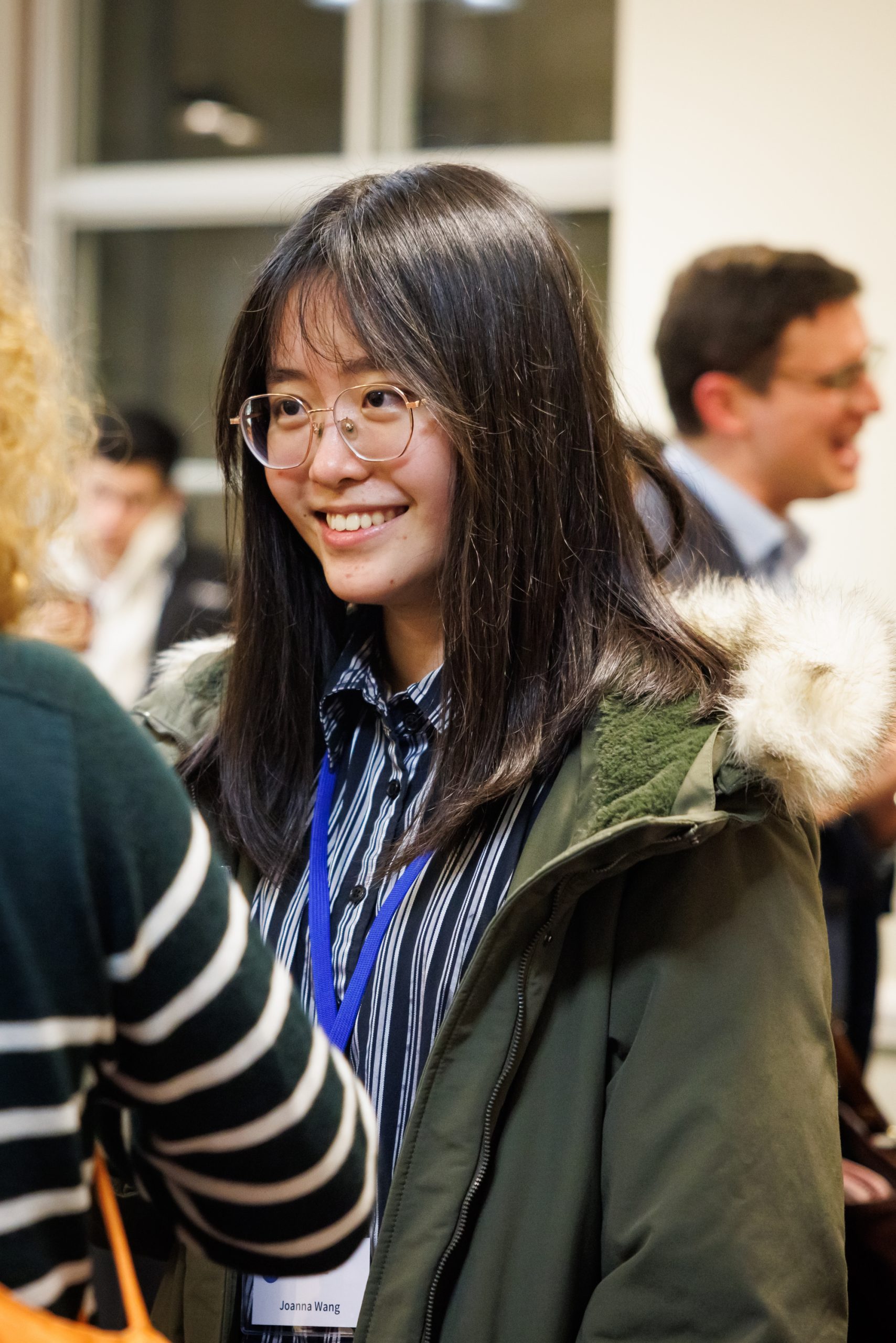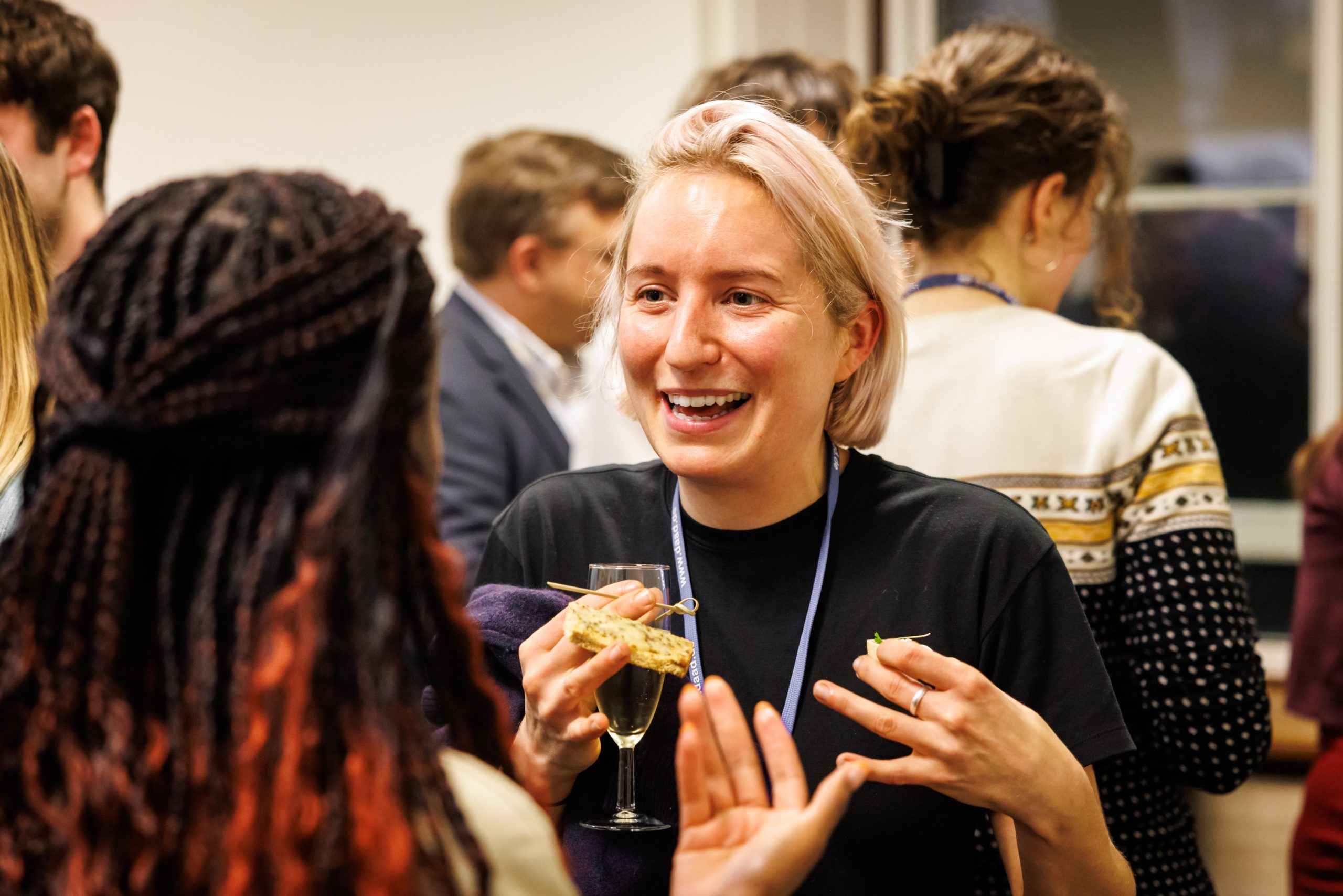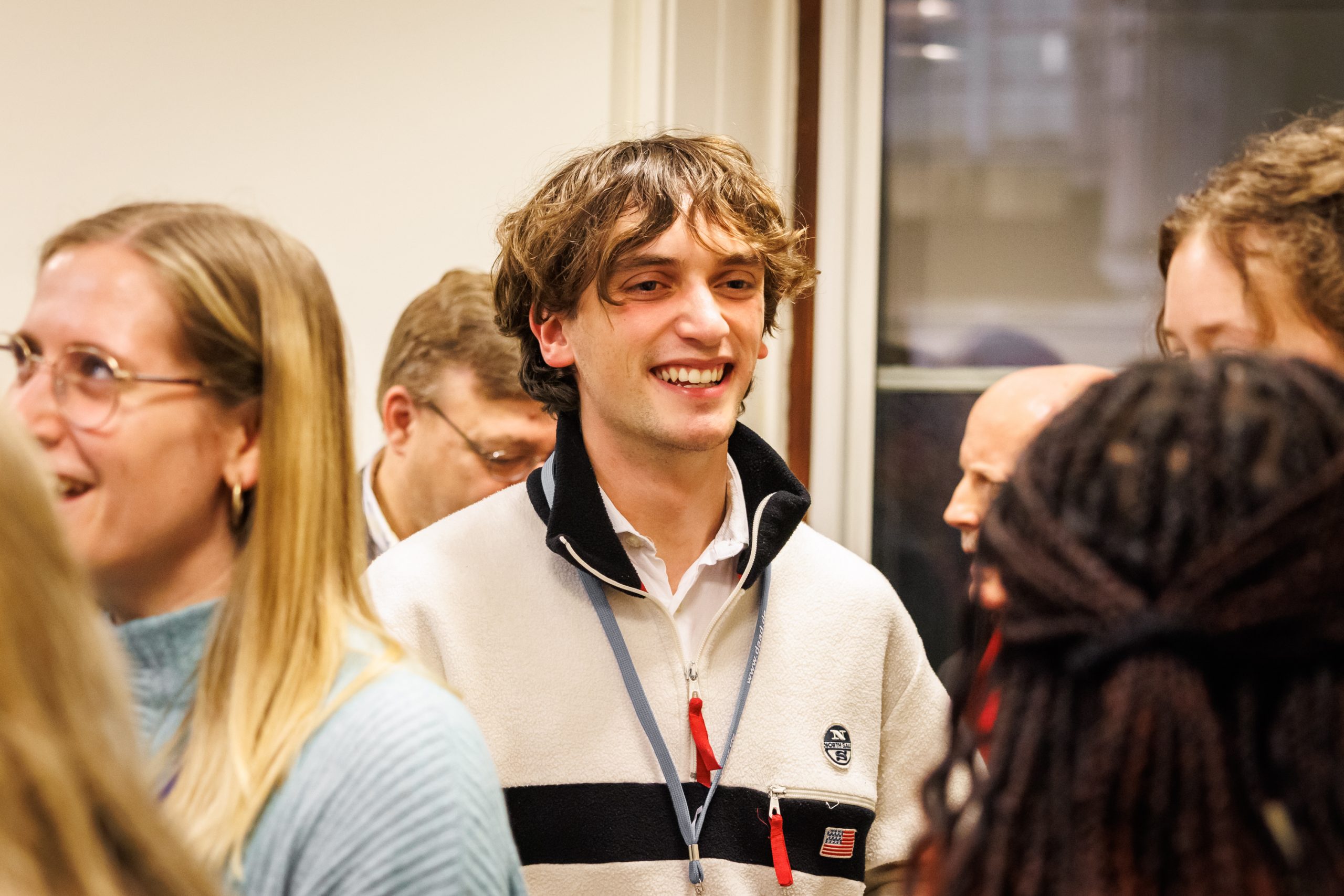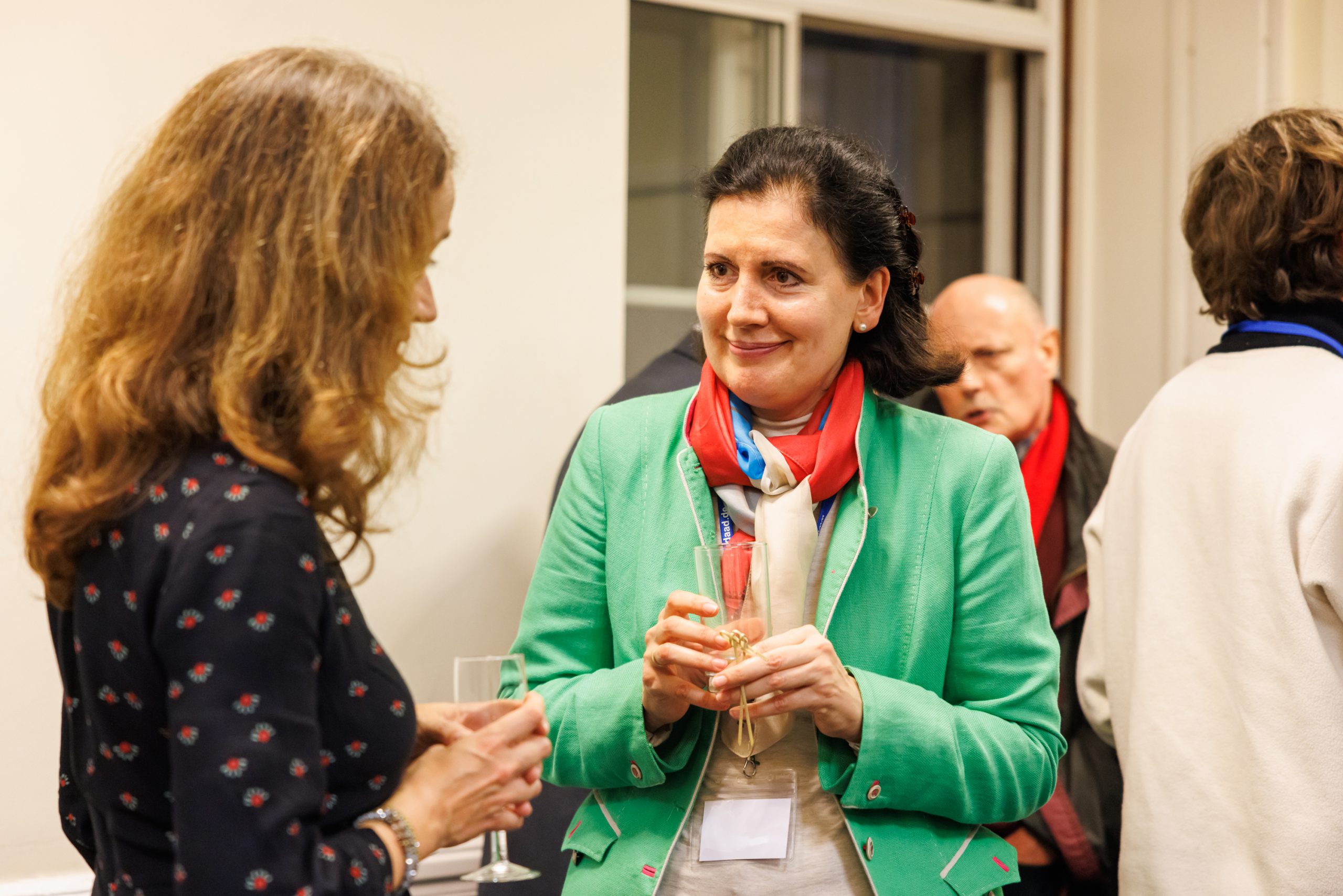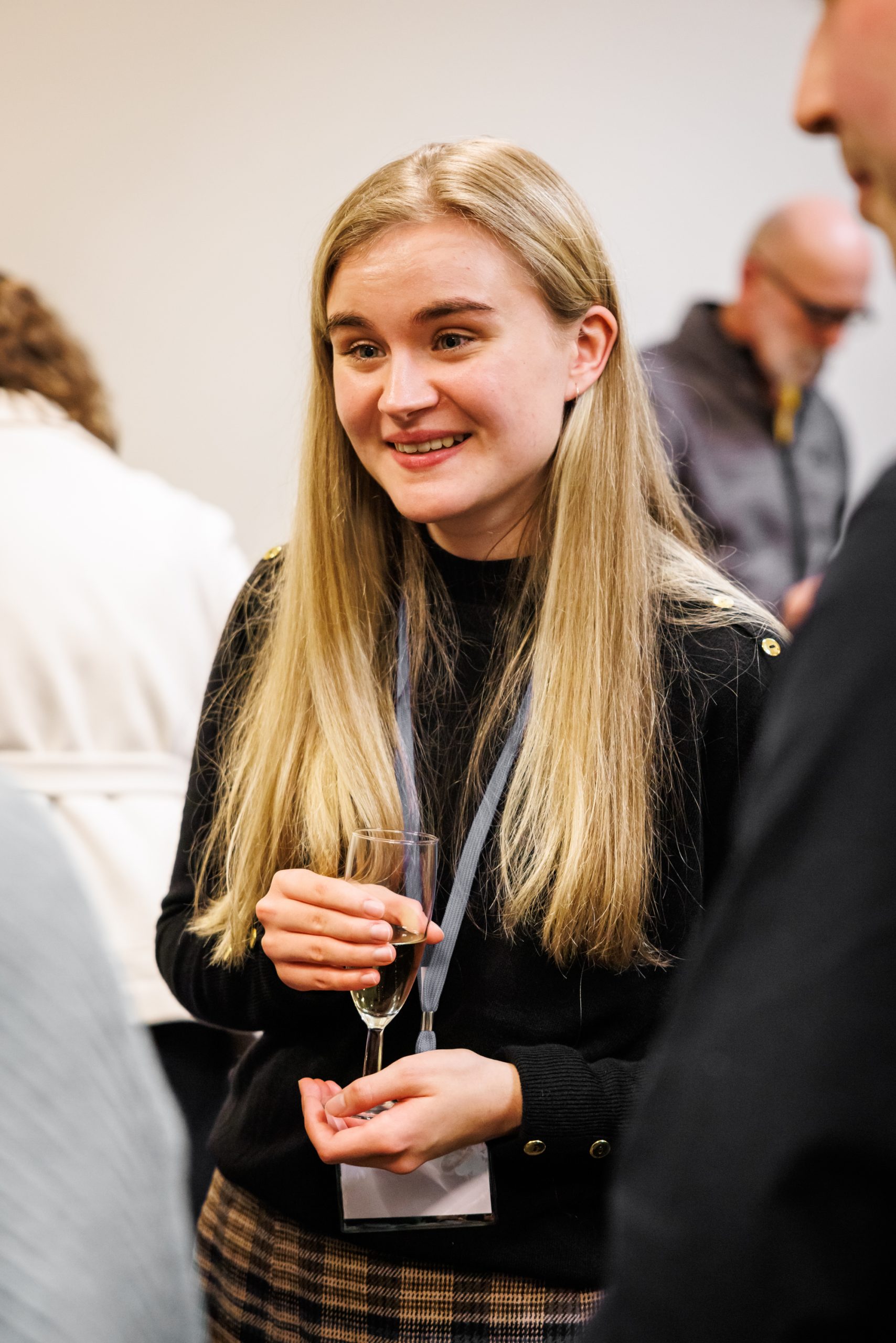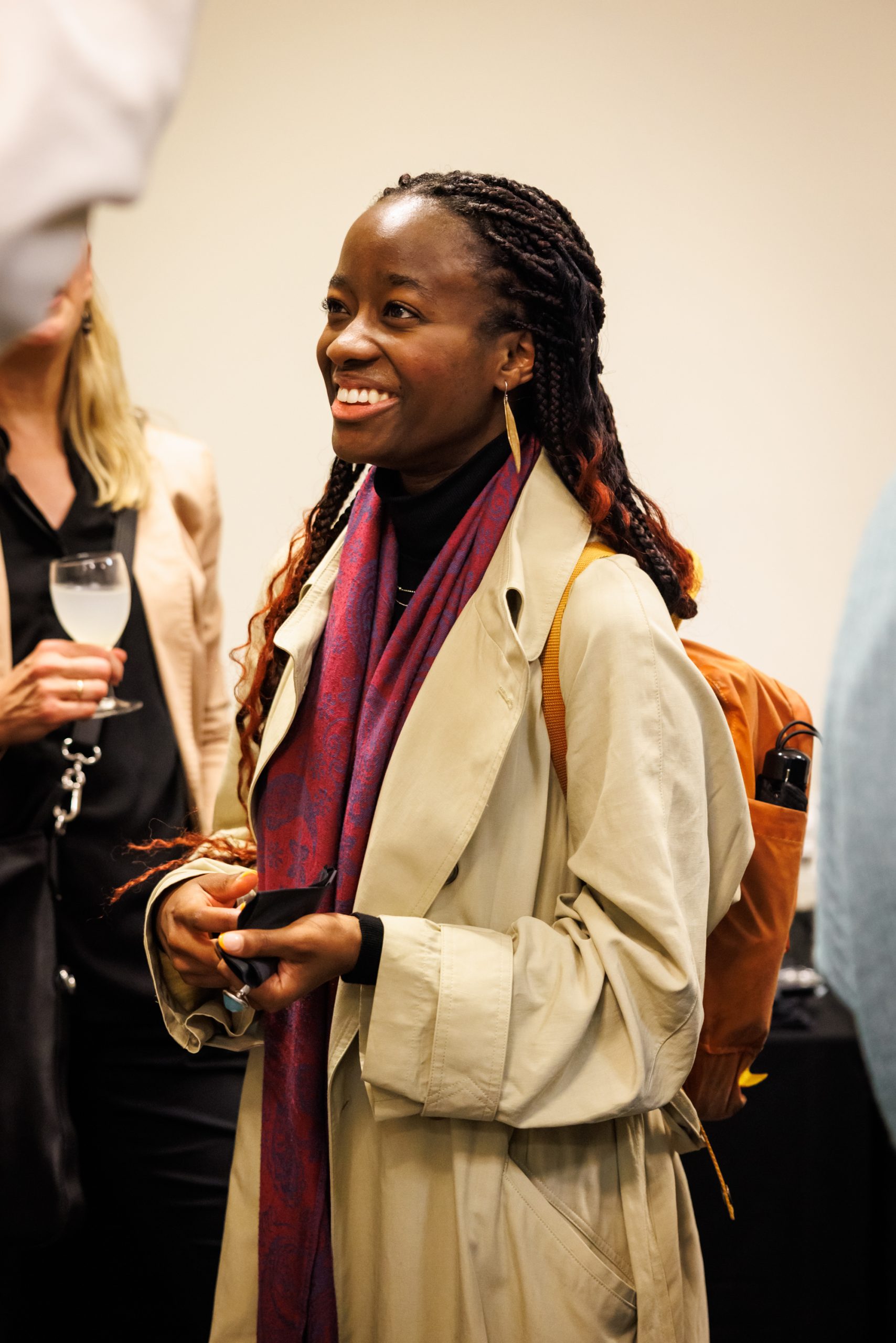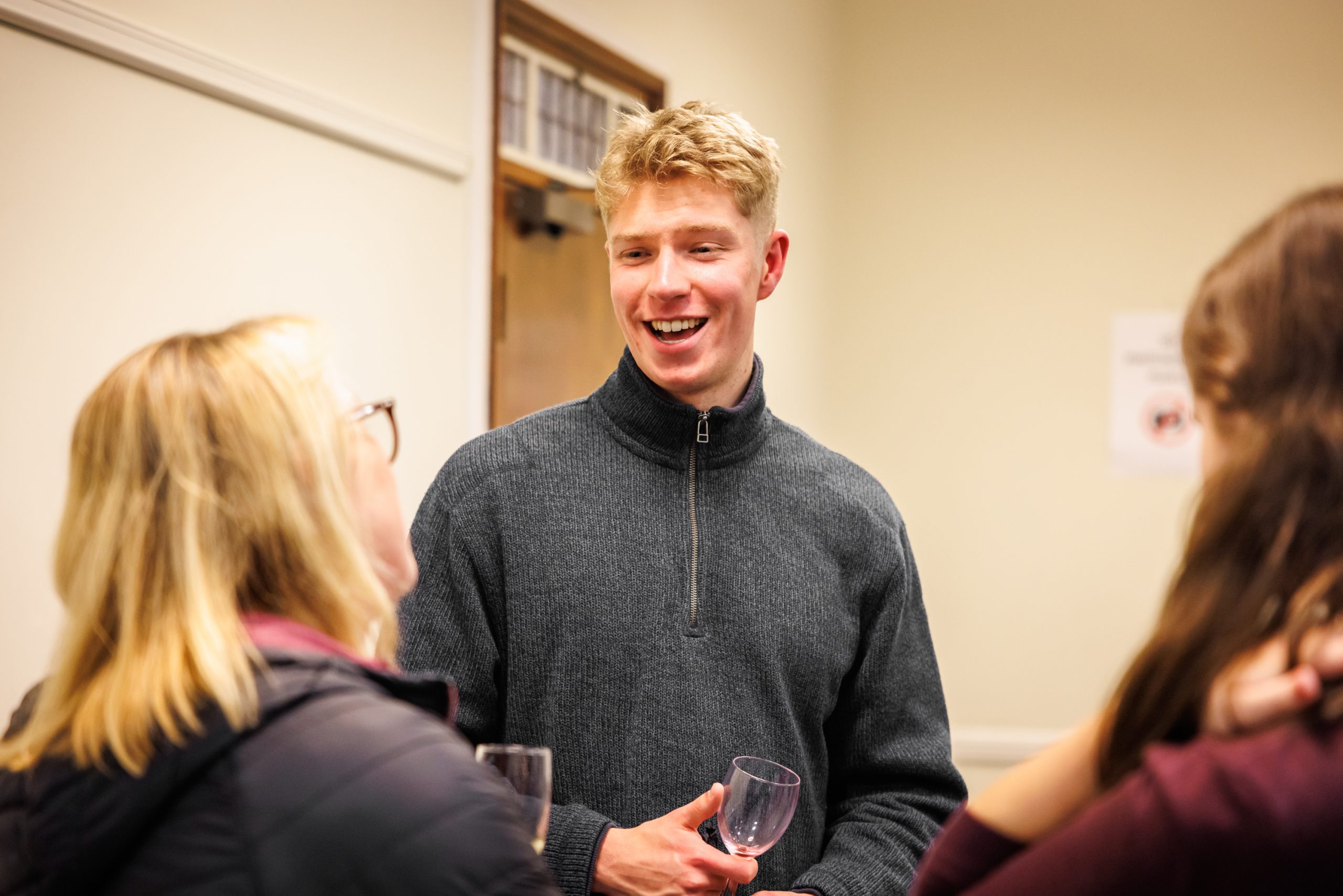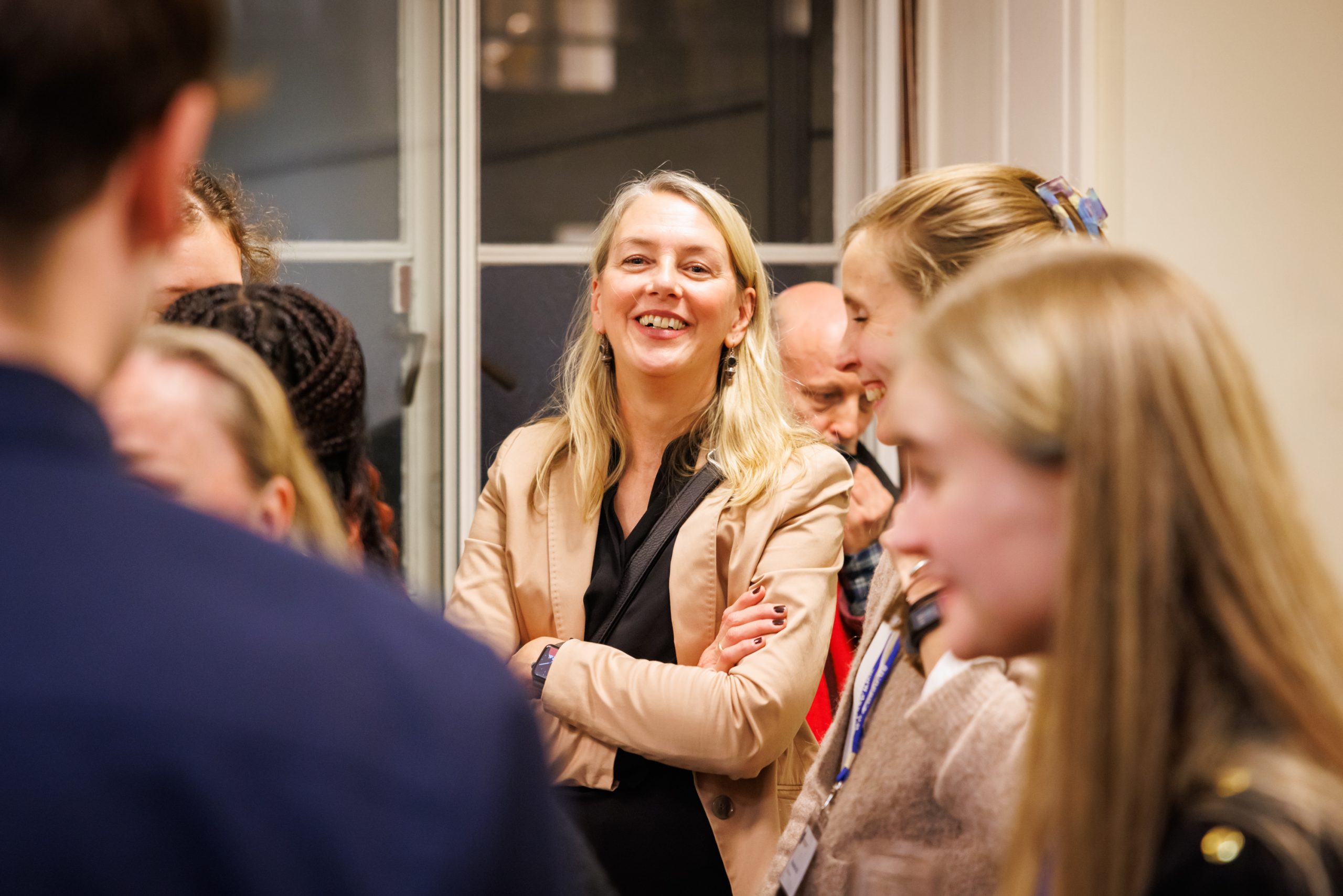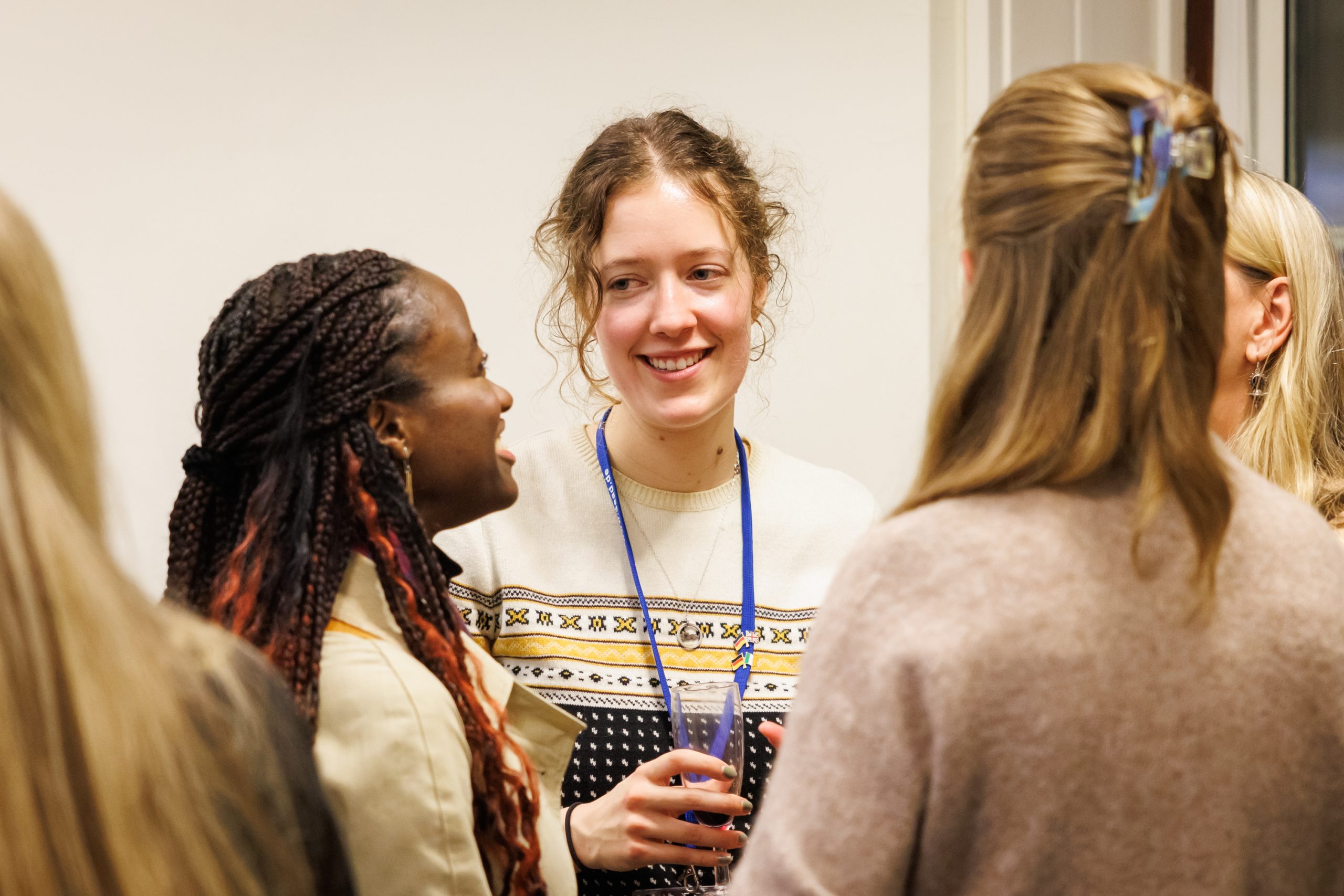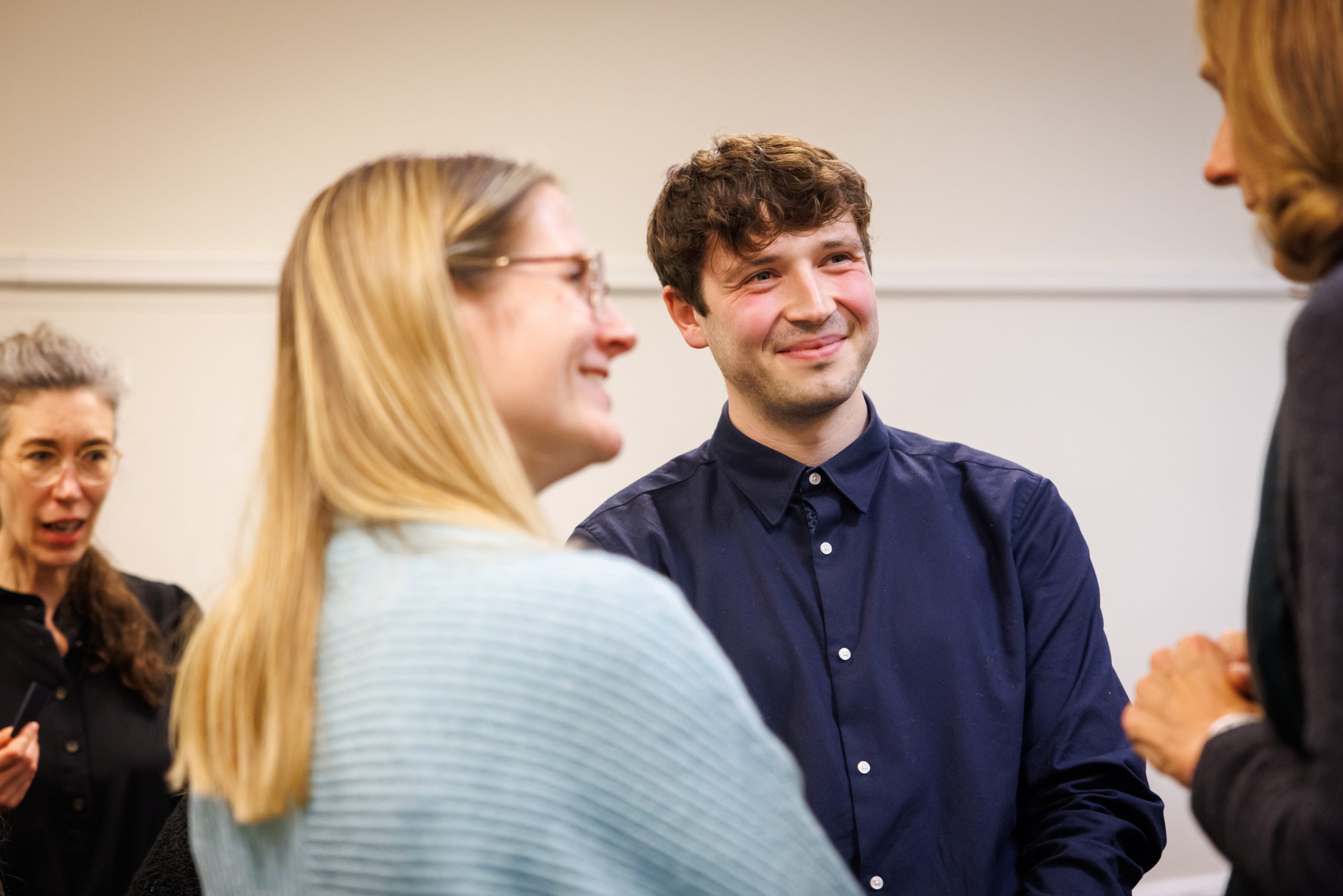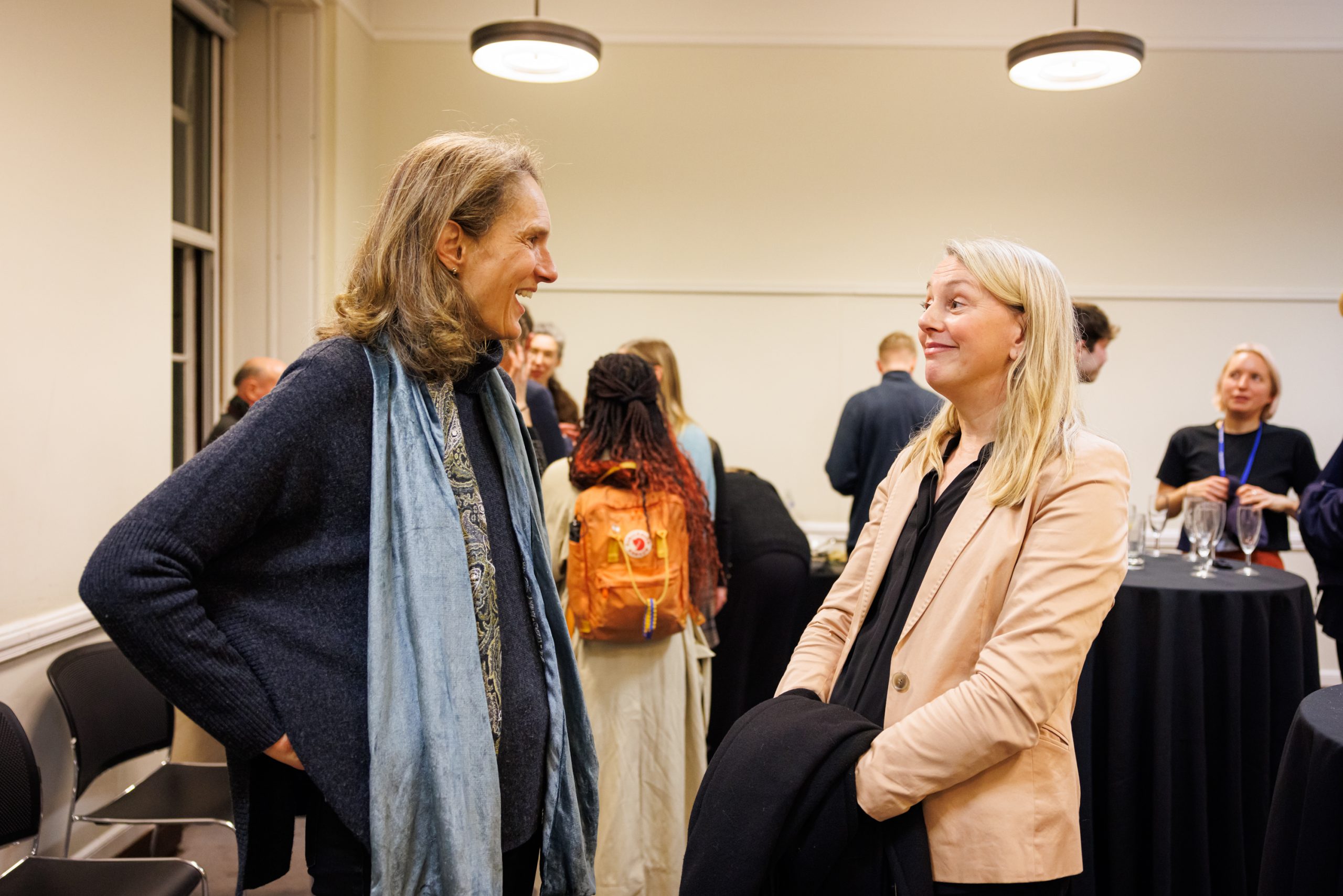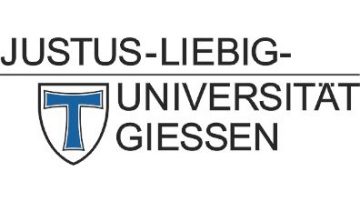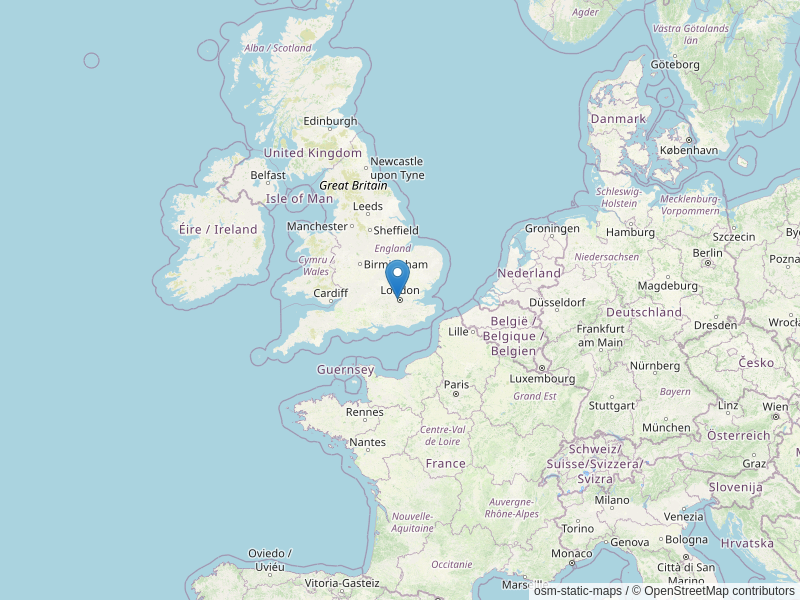DAAD/ILCS German Language Competition 2023

In the 2023 competition, participants were invited to look back at turning points from the past century of German – and therefore also European – history. The task was writing a letter or diary entry imagining alternative developments.
Inspired by the theme of the current exhibition at Deutsches Historisches Museum (DHM) in Berlin, the German Academic Exchange Service (DAAD) and Institute of Languages, Cultures and Societies (ILCS) called for entries to the 2023 German Language Competition. Focusing on events like the Great Depression (1929), the assassination attempt on Adolf Hitler (1944), the construction of the Wall (1961) and the Peaceful Revolution (1989), the DHM exhibition sheds a new light on these turning points by asking ‘What might have happened?’ if the course of history had been different at these times.
Ten of our DAAD/ILCS German Language Competition winners joined forces to do a workshop and produce a podcast with BBC Journalist Apprentice Chelsea Coates. Hear them speak about their ideas of ‘Roads not Taken’ in German history, the creative writing process and advice for other German learners:
Copyright: DAAD, Music: Margareta/Who’s to Say/courtesy of www.epidemicsound.com
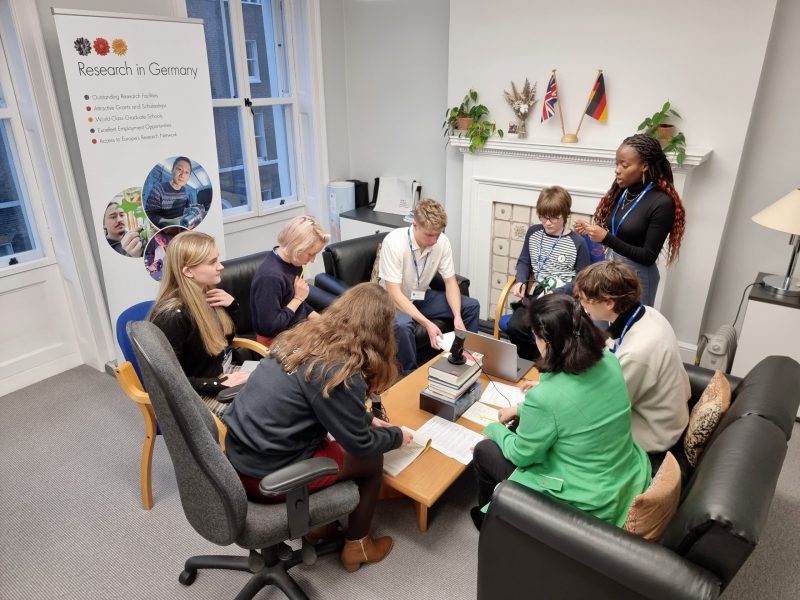
GLC 2023 winners recording their podcast with Chelsea Coates at the DAAD London Office© DAAD
On 3rd November 2023, ten of the twelve winners of the 2023 DAAD/ILCS German Language Competition celebrated their entries together with their guests and the wider public during an Award Ceremony at Senate House, University of London. They also had the opportunity to engage in a discussion with Julia Franke, curator of the DHM exhibition ‘Roads not taken. Oder: Es hätte auch anders kommen können’, and Dr Alex Lloyd, Lecturer in German at the University of Oxford.
We received a wide range of creative entries and we were impressed by the high level of German and use of imagination in a historical context. The jury has made a decision and we are delighted to announce the results of the 2023 competition:
Category: Secondary School Pupils
- Louis Aan de Wiel, Villiers School, Limerick
- Alexander Wride, Royal Grammar School Newcastle
- Gabriel Bosse Chitty, Fitzharrys School, Abingdon-on-Thames
Category: 1st Year University Students of German Studies
- Zoe Christie, University of Exeter
- Samuel Herbert, University of Exeter
- Reya Hossain, University of Cambridge
Category: Advanced University Students of German Studies
- Piers Hamilton, University of Bristol
- Jiayin Wang, University College London
- Charlotte Atkinson, University of Durham
Category: Other German Learners
- Katy Hawkins, Birmingham
- Eleni Pavlopoulos, London
- Enya Xiang, University of St Andrews
People’s Choice Award: Gabriel Bosse Chitty, Fitzharrys School, Abingdon-on-Thames
Check out the 12 winning entries here.
Hear some excerpts of winning entries read by their authors:
STEP 1: Choose one of the four turning points in German and European History presented below.
STEP 2: Take a look at the exhibition website and find out more about the chosen event using LeMO or other trustworthy sources.
STEP 3: Imagine that the event did not take place the way we know it today (e.g., the Wall has not fallen and the GDR continues to exist). Put yourself in the shoes of a fictional or real person who is experiencing the alternative reality. Write a diary entry or a letter of no more than 500 words in German (!) from this person’s perspective, choosing any road not taken in reality!
Remember to include the date of your letter or diary entry, so the reader knows whether you are reacting directly to the event – or looking back on it from a distance of weeks, months, or even years!
TURNING POINTS
1929: Weltwirtschaftskrise (Great Depression)
The crash of the New York Stock Market in October 1929 causes a never-seen-before economic crisis globally. In Germany, incomes sink by a third and unemployment rises from 1.3 to 6 million. The crisis causes widespread suffering and economic need among citizens. It is considered one of the nails in the coffin for the first German democracy, the Weimar Republic, and an accelerator for the rise of Nazism in Germany.
1944: Attentat auf Adolf Hitler (Assassination Attempt on Adolf Hitler)
On 20th July 1944, Claus von Stauffenberg and other conspirators attempt to assassinate Adolf Hitler, inside his Wolf’s Lair in present-day Poland. The aim of their plot is to regain political control of Germany and its armed forces from the Nazi Party and to make peace with the Western Allies as soon as possible. However, Hitler survives the assassination attempt slightly injured and the plot fails.
1961: Mauerbau (Construction of the Wall)
The SED regime constructs a wall through Berlin to curtail massive emigration from East to West. This leads to dramatic tensions between the Western allies and the USSR. Several stand offs using tanks at checkpoints occurred. John F Kennedy accepts the split of the city and guarantees the security of the Western part of Berlin during a visit in 1963.
1989: Friedliche Revolution (Peaceful Revolution)
Unhappy with the SED regime, more and more citizens of the GDR start to join protest movements beginning in Leipzig. Many also attempt to flee the country. This comes to a boiling point in November 1989, when protesters peacefully cause the collapse of the regime and the infamous Berlin Wall, which ultimately enables the reunification of Germany.
Submissions are now closed.
After entering your personal details, you will be asked to upload your competition entry as a PDF file. Please be aware that only participants living in the UK or Ireland are eligible to take part in the competition.
Submission deadline: 3rd May 2023
Feel free to contact events.london@daad.de if you have any questions.
Top Prize: One of three trips to Berlin with visit of the DHM Exhibition and guided tour by the curators (details tbc)
People’s Choice: Language Course with the Goethe Institute London
Other winners will receive surprise goodie bags.
All winners will be invited to London for a workshop and award ceremony on Friday, 3rd November 2023.
We thank the following organisations for their continuous generous support:

Stephan Ehrig is a Lecturer in German at the University of Glasgow. He researches German literature around 1800 (especially Heinrich von Kleist), contemporary streaming TV, engages with interdisciplinary approaches to East German culture (literature, theatre, film, architecture) but is also interested in how German culture generally can be re-located within transnational and ‘de-colonised’ approaches to the study of Modern Languages.
Paul Hoegger is co-ordinator and teacher of German at the Cambridge University Language Centre and Affiliated Lecturer at the Faculty of Modern and Medieval Languages and Linguistics of the University of Cambridge. He is also Director of Studies for Modern Languages at Fitzwilliam College Cambridge and teaches literary seminars at the Institute of Continuing Education of the University (Madingley Hall).
René Koglbauer is Dean of Lifelong Learning and Professional Practice and Professor of Professional Learning and Leadership at Newcastle University. René is the chair of the Board of Trustees of the Association for Language Learning and has previously been its president. René is the UK representative to the International German Teacher Association and an executive board member of the University Council for modern Languages.
Duncan Large is Professor of European Literature and Translation at the University of East Anglia in Norwich and Academic Director of the British Centre for Literary Translation. Till 2014 he was Professor of German and Head of the Department of Languages, Translation and Communication at Swansea University.
Joanne Leal is a Professor in German at Birkbeck, University of London, where she is also Dean of the School of Arts. She teaches and researches in the areas of twentieth and twenty-first century literature and film and has a particular interest in gender and sexuality and the representation of significant social issues, including migration and social exclusion.
Maria Roca Lizarazu is postdoctoral researcher in Creative Futures at the Moore Institute, University of Galway. Her research interests include German Jewish literature and culture, memory and futures studies, as well as transnationalism, (post-)migration and citizenship in the German-language context. Maria is particularly interested in what arts-based research and creative methodologies can contribute to transforming social, cultural and political responses to questions of migration, belonging and membership.
Emma Whittle is a Project Coordinator at the Goethe-Institut London. She works on different programmes for students and professional development for teachers with a focus on German language learning and intercultural experiences. Emma previously worked as a language teacher and teacher trainer.
Andrea Wilczynski is Head of the School of Modern Languages at Newcastle University. She has been a longstanding member of the School’s German Section where she currently teaches Interpreting and German language to final year students. She is a Senior Fellow of the Higher Education Academy.
In order to facilitate the integration of the competition into German classes at schools and universities, we offer exercises for writing personal letters and diary entries with corresponding answer keys that can be used from level A2 and above. You also find a list of recommended media that will help your students familiarise themselves with the theme of the competition.
The teaching material as well as the solutions to the exercises and the list of recommended media can be downloaded here:
-
GLC 23 – Ideen zur Vorbereitung [PDF, 144.45kb]
-
GLC 23 – Einen persönlichen Brief schreiben [PDF, 180.22kb]
-
GLC 23 – Einen persönlichen Brief schreiben (LÖSUNG) [PDF, 196.46kb]
-
GLC 23 – Einen Tagebucheintrag schreiben [PDF, 168.76kb]
-
GLC 23 – Einen Tagebucheintrag schreiben (LÖSUNG) [PDF, 187.60kb]
